Society
King Dakolo speaks out on Crude Oil theft in Nigeria
A Look at the Insights and Revelations in The Riddle of The Oil Thief.
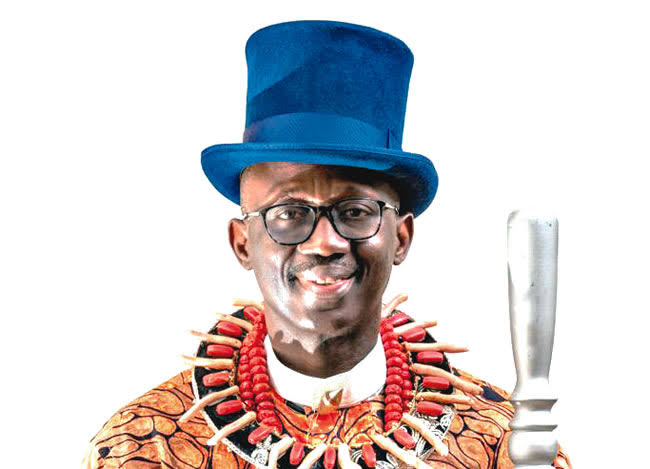
King Dakolo, a vocal advocate for the Niger Delta region, has recently spoken out on the issue of crude oil theft in Nigeria. He believes that the Federal Government of Nigeria is condoning crude oil theft in the country, which is why it continues to be rampant. According to him, security agencies are powerless because they know that the government is not serious about curbing oil theft.
King Dakolo has authored three books in two years, including The Riddle of The Oil Thief, which has gained international acclaim for its revelations on crude oil theft. The book provides insights into why crude oil theft is so prevalent in Nigeria and the extent of the problem. King Dakolo believes that the mismanagement of oil resources in the past 67 years is the reason for continued crude oil theft. Nigerians have little knowledge of how much oil the country produces, and the oil and gas resources have been poorly managed. Europeans have taken advantage of Nigeria’s mismanagement and sell the country’s oil at a premium.
The Nigerian government has not done enough to curb the rampant crude oil theft in the country, according to King Dakolo. He argues that the security agencies are powerless because they know that the government is not serious about stopping the theft. King Dakolo’s insights have brought attention to this issue, and it is hoped that they will lead to positive change.
King Dakolo’s views on crude oil theft in Nigeria are important because they highlight the extent of the problem and the reasons behind it. His insights have brought attention to this issue, and it is hoped that they will lead to positive change.
Culture and Entertainment
Onyeka Onwenu-1952 – 2024
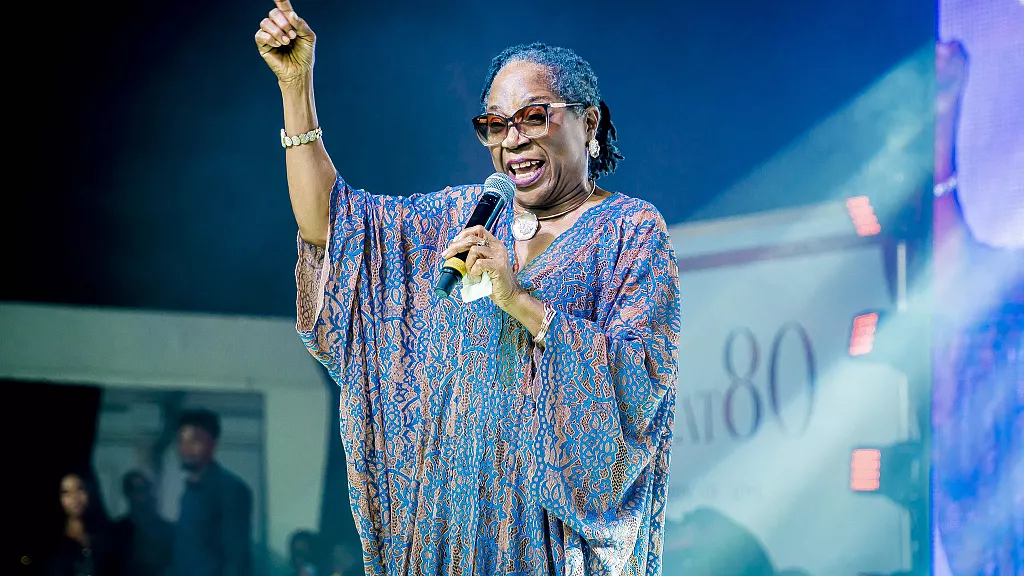
There in heaven rests Onyeka Onwenu, a woman of grace and strength, whose life bridged tradition and modernity. As a liberal-conservative, she embraced the progressive ideals of her American education while honoring the deep roots of her Igbo heritage. She sang the stories of a nation in songs echoing the spirit of resilience and hope.
A devoted wife and mother, Onyeka cherished the unseen and unheard contributions of her loving husband, whose steadfast support was the quiet strength behind her public triumphs. Together, they nurtured a family grounded in love, respect, and shared values.
Onyeka’s legacy as an artist, activist, and advocate for education lives on in the hearts of those she inspired. Her unwavering dedication to cultural heritage and social justice will continue to light the path for future generations.
In the harmony of life and the melody of love, Onyeka Onwenu remains an eternal music of Nigeria’s enduring spirit.
Culture and Entertainment
TuFace and Flavour’s Evolution and Revolution Influence on Nigerian Music
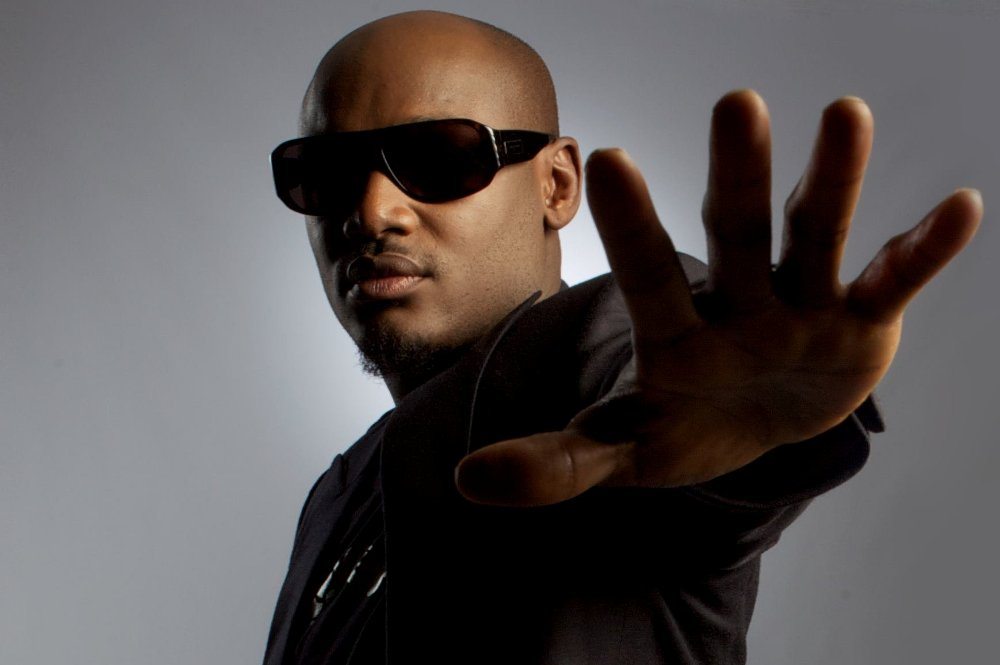
It was interesting to hear out two On Air Presenters (OAPs) debate, which of TuFace Idibia and Flavour, two Nigerian style-definite artistes to cool off with after heated political analyses. Quick to it!
TuFace, known for his Afrobeats fusion, evolved beyond highlife, blending R&B, reggae and soul. He followed the global successes of Shina Peters and Majek Fashek. Shina Peters with “Ace (Afro-Juju Series 1-1989)” fused juju music with Afrobeat for Afro-Juju. Shina’s female dancers twerk- entranced African-Americans with energetic rhythms and catchy melodies. On the other hand Majek Fashek with “Send Down the Rain,” earlier from his 1988 album “Prisoner of Conscience,’ was a sentimental crowd puller. The song’s powerful lyrics and reggae rhythms resonated with audiences worldwide and earned him the sobriquete “The Rainmaker.” Again Majek’s peculiar stage antics crowned him!
TuFace’s “African Queen” and “Only Me,” eriched social consciousness, addressed themes of justice and responsibility.Was he somewhat unabble to shake off Majek’s influence? No, you could hear the strains of Bob Marley’s chant, which Majek hacked into for inspiration. So would the same be said of Flavour vis-a-vis Shina Peters’ influence. Flavour revolved back to highlife by infusing traditional Igbo rhythms and instruments. His “Ada Ada” and “Nwa Baby” still celebrates cultural themes, love and joy. Really, continuing highlife’s relevant organic throw-back themes since the 1960s. Unmistakbly evolving and revolving respectively, TuFace and Flavour have continued to drive that dynamic harmonizing synergy of Nigerian culture across borders.
Tuface gained fame from the now-defunct vocal group, Plantashun Boiz, before a solo success. His debut album, Face 2 Face (2004), featured that iconic anthem “African Queen,” celebrating beauty and identity. He continued building on that initial success with a 2006’s “Grace 2 Grace” featuring an inuendo against critics, who might sound too confident. In Nigerian parlance ‘over sabi!’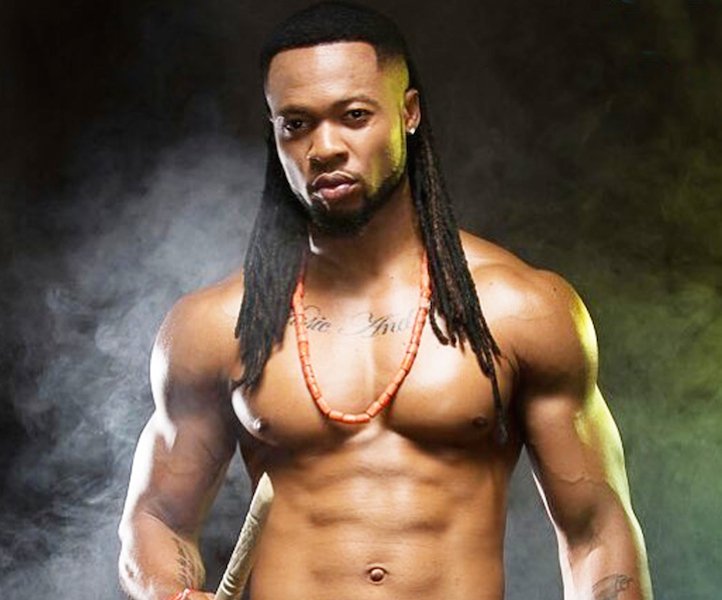
In 2008, he preferred ‘The Unstoppable,’ to keep his stomping confidence though. You could say he was really ‘TuFacing,’ truly to nature after rebuking, ‘Over Sabi! 2012 welcomed ‘Away and Beyond” to nail introspectve spiritual growth on the track “Higher (Spiritual Healing).” By then Flavour had come with Blessed (2012) – with romantic storytelling “Ada Ada,” and Uplifted (2010) featuring the hit “Nwa Baby,” a blend of modern sounds with highlife roots. Those followed debut N’abania (2005) that coined his highlife nuances.
TuFace continued pursuing his spiritiual “(The) Ascension” in 2014, a global attraction with diverse sounds for international appeal. He celebrated 2020 with – “Warriors” to stamp his enduring music persona, despite unceasing conflict with defunct Plantashun Boiz member, Black Face who claimed the o be actual lyricist on “African Queen.” But Flavour was thankful about life pleasures with “Ololufe” from album “Thankful (2014);” following up with “Ijele the Traveler (2017)” with evolutionary traditional and contemporary influences. “Flavour of Africa (2020)” testified to cultural pride, highlighting African rhythms and melodies.
Really, TuFace and Flavour had successfully accepted music batons from Shina Peters and Majek Fashek to sustain dynamic Nigerian music synergy, blending tradition and innovation. Both also laid foundations for Burner Boy, Whiz Kid and Davido, all celebrating an ever dynamic Nigerian popular culture with distinct yet cumulative highlights for global attention.
Back to the OAPs! I would advise that they consider the uniqueness of TuBaba (TuFace Idibia)’s genre versatility, mature objectivity and international collaborations with stars like Mary J. Blige-“Rainbow (Remix) 2012” for . They could be cool with Flavour’s music, deeply rooted in highlife, celebrating culture, love and joy. Powerful vocals and traditional Igbo elements crossed with Fally Ipupa’s Congolese makossa, in “Kwarikwa-Remix 2021” creating a dynamic fusion of crossborder African music could thrill. Both artistes have ensured the evergreen situation of Highlife music in global reckoning coming from the 1960s.
Accolades to some notable Nigerian highlife music stars from the 1960s to the 1970s
1.Rex Lawson- “Sawale”
2.Victor Olaiya- “Baby Jowo”
3.Bobby Benson- “Taxi Driver”
4.Osita Osadebe – “Osondi Owendi”
5.Roy Chicago- “Iyawo Pankeke”
6.E. T. Mensah — “All For You”
7.Fela Anikulapo-Kuti- “Zombie,” on Afro Beat, not today’s Afrobeats.
Politics
Father of Protests Fears Grand Kids’ Protests!
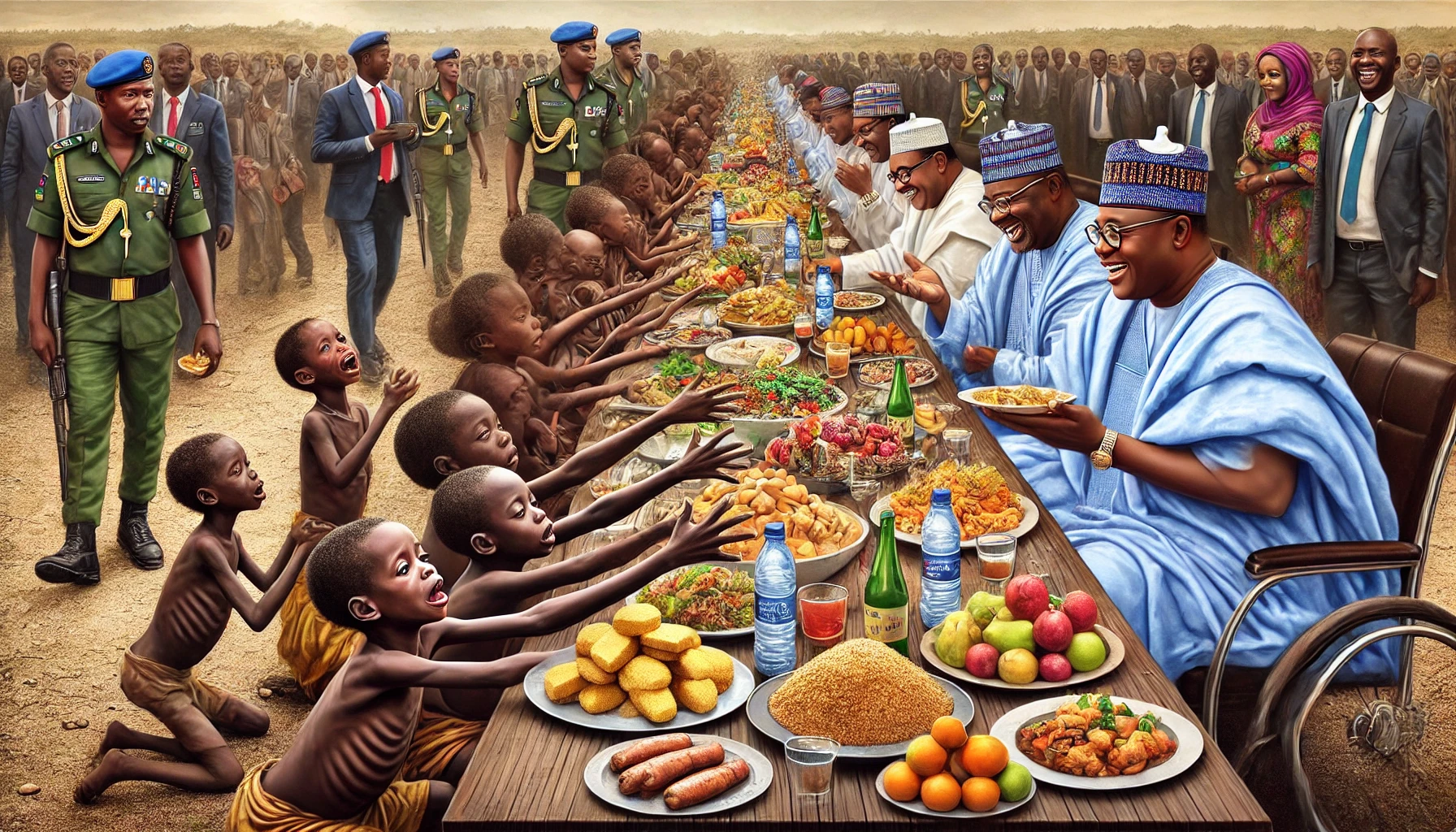
Tinubu’s leadership in the National Democratic Coalition (NADECO) during the 1990s marked a pivotal moment in Nigeria’s struggle for democracy. Opposing military mismanagement, he and fellow activists advocated for democratic governance, ultimately paving the way for Nigeria’s current political system. This activism may have been heavily influenced by luminaries like First Republic Western Nigeria leader, Chief Obafemi Awolowo, who showcased a commitment to democracy that resonated with Nigerians.
However, the current socio-political climate sharply contrasts with the altruism of the past. The looming protests scheduled for August 1, 2024, signal a significant civil unrest rooted in widespread dissatisfaction with Tinubu’s federal administration. Despite his attempts to pacify citizens, the populace is mobilizing, determined to confront economic hardships and governance failures head-on.
President Tinubu’s rise to power, marked by great expectations, may have devolved into disillusionment. Following his controversial decision to raise petroleum prices shortly after inauguration on May 25, 2023, hopes for transformative change have faded. Rising inflation and worsening wealth inequality have fueled concerns about the administration’s governance. The National Bureau of Statistics, Nigeria reports a 33% unemployment rate and significant socio-economic disparities, contributing to widespread frustration among citizens over the government’s effectiveness.
Political figures such as Peter Obi, a prominent opposition candidate in the 2023 presidential elections, have attributed the unrest to structural issues of hunger and economic frustration. Meanwhile, Tinubu’s supporters, including media helps Bayo Adenuga, continue to defend his administration, despite growing discontent among the general populace. This division underscores the deepening wound between expectation and reality.
Amidst this rising economic tensions, Nigeria’s youth, often referred to as “Generation Next,” are increasingly vocal about their frustrations. Characterized by their adept use of social media and grassroots organizing, this generation is focused on demanding transparency and accountability from their leaders. They juxtapose their plight against past protests like the 2020 #ENDSARS. Drawing inspiration from the activism that defined Tinubu’s early years while forging their own path forward they called #ENDBADGOVERNMENT!
In that context, Generation Next, a powerful force advocating for change mobilizes against stagnant opportunities, challenging the status quo and seeking redress for economic injustices. Their emergence stands in stark contrast to Wole Soyinka’s notion of the “Wasted Generation,” as they actively strive for a more equitable society, demanding their rights to basic needs and opportunities.
As the August 1 protests approach, citizens are not merely addressing economic hardships, but also the pervasive climate of corruption engulfing Tinubu’s administration. Allegations of misallocated funds and ineffective economic policies have led to skepticism regarding his promises of transparency and governance. This atmosphere of distrust has intensified calls for investigations and greater accountability, echoing the sentiments that initially drove Tinubu’s own activism.
Protesters seek accountability from leaders amid corruption and fading public trust. Their demonstrations reflect a generational desire for a government that represents their interests, symbolizing a broader struggle for equity and justice, empowering youth to challenge failing governance.
Faced with this mounting discontent, President Tinubu is seemingly confronted with a paradox: as the father of protests, he now finds himself fearful of the very movements he once inspired. The echoes of NADECO are inescapable, reminding him of his past struggles against military rule and fight for democracy. However, the current civil unrest poses a formidable challenge, placing his legacy in jeopardy.
The August 1 protests in Nigeria extend beyond economic hardships, representing a struggle for democracy and equity. Citizens aim to hold President Tinubu accountable and challenge his legacy. This moment underscores the need for reform and reflects on leadership responsibilities amid rising youth activism.
Culture and Entertainment
Onyeka Onwenu’s Enduring Legacy of Pan-Nigerian Reconciliation.
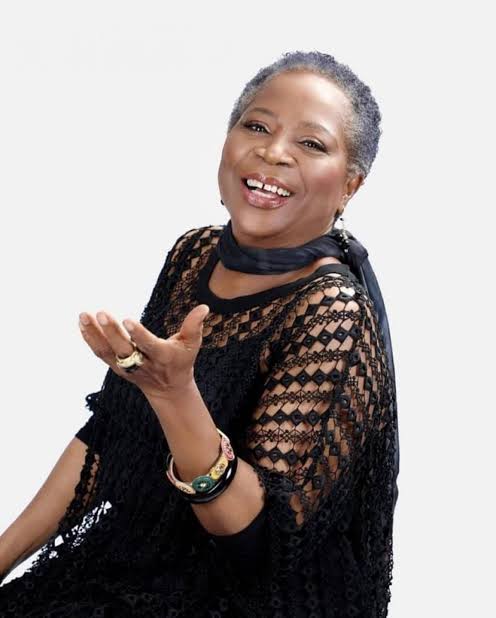
She was trained in notable scenic and beautiful lake woodlands community with a botanical garden, Wellesley College, Wellesley, Massachusetts, USA. That is about 12 miles west of Boston. She was also at The New School for Social Research situated in vibrant Greenwich Village neighborhood of New York City, USA. Those positioned her uniquely as both an advocate for social justice and a cultural ambassador.
Onwenu earned a BA in International Relations and Communication and an MA in Media Studies from both US institutions, returned and joined the Nigerian Television Authority (NTA), 1980. In 1984, Onwenu co-produced the BBC documentary ‘Nigeria: A Squandering of Riches,’ https://youtu.be/y-OzTxlstw8 critically examining resource mismanagement and corruption, solidifying her role as a social commentator and advocate for accountability, despite attracting controversy.
Internationally, it enhanced her recognition as an artist and activist committed to social justice, solidifying her reputation as a multifaceted figure advocating for positive change. The same streak of character influenced Onwenu’s music career, which also flourished, with songs often addressing social issues and promoting unity and peace
Born January 31, 1952, in Obosi, South-East Nigeria, she was a popular singer, journalist and advocate for women’s rights. The Nigerian Civil War (1967-1970) had profound impacts on Onwenu’s early life. More so, following her father, D.K. Onwenu, a prominent educationist and politician’s passing in a car accident, leaving the mother to raise five children alone.
Onyeka Onwenu’s Igbo heritage significantly shaped her post-Civil War career, earning recognitions from cultural organizations. She chaired the Imo State Council for Arts and Culture, led the National Centre for Women Development and engaged in politics through the People’s Democratic Party (PDP) to address social issues.
In the 1990s, Onyeka Onwenu shifted her music to Christian gospel, continuing her advocacy for women’s rights, health issues, and social justice. As Chairperson of the Imo State Council for Arts and Culture and Executive Director of the National Centre for Women Development, she envisioned a reconciled Nigeria founded on inclusivity and understanding among diverse ethnic groups. Her arts still promote dialogue, unity, and reconciliation in Nigeria, empowering marginalized communities, especially women, through education, activism, and media for social reforms.
Onwenu’s compassionate outreach extended to health awareness, particularly HIV/AIDS advocacy, where she integrated health campaigns with music, fostering a sense of community responsibility. Moreover, her role in “Half of a Yellow Sun” showcased Nigerian narratives to global audiences, promoting cultural pride and cross-cultural dialogue. In glory, Onwenu now unites art and advocacy for Pan-Nigerian reconciliation and change.
Business
THE MODEL PERSONA – What is a Nigerian?
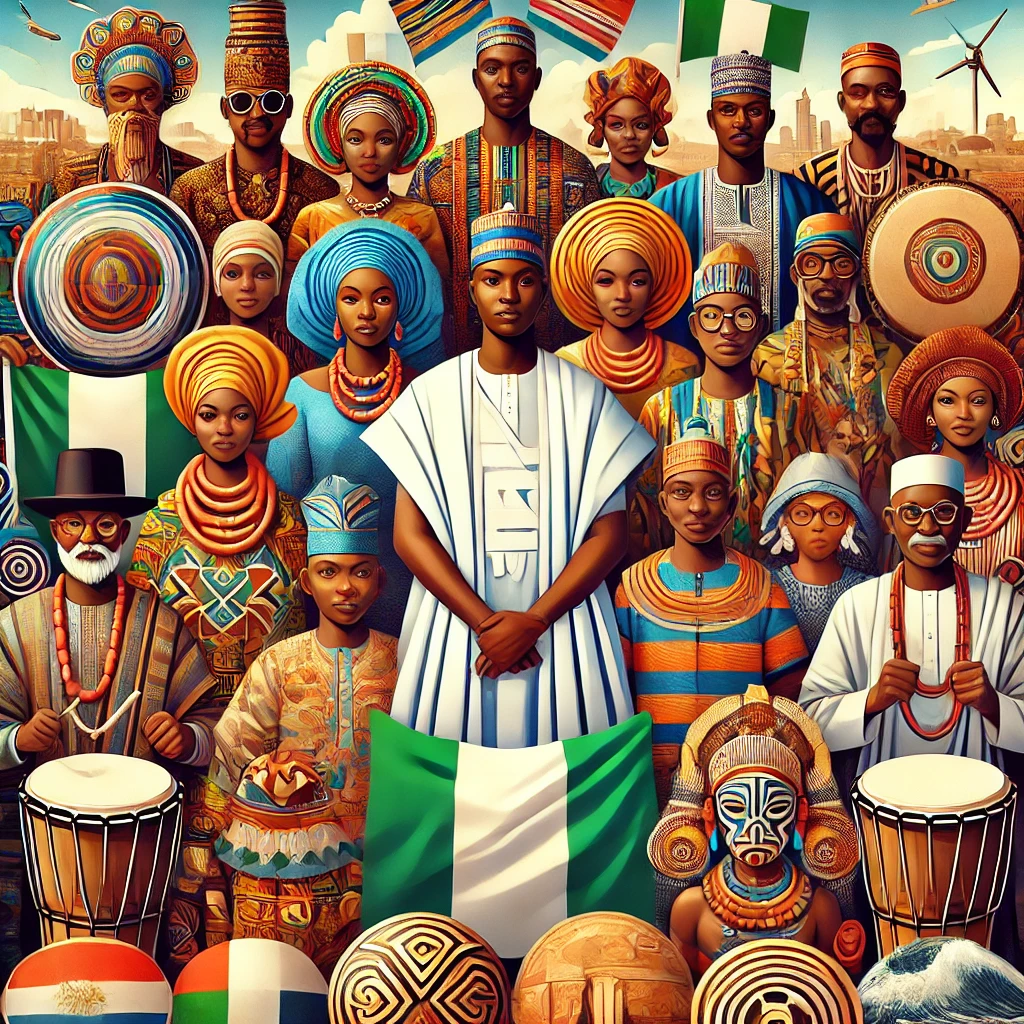
Should we be asked the question, ‘Who is the Nigerian,’ could we not rather provide an answer for, ‘What is the Nigerian?’ Such, should be one of many answers for every respective ignorant or informed Nigerian, to bestow a sense of nationhood.
Nigeria is a vibrant geography with diverse culture, a strong sense of overcoming challenges and rich potential to fulfil global perception as a black power. However, the complex mechanisms of unity, identity and desired need for progress towards the stated, can only be envisioned by understanding the essential Nigerian person. There are themes that could shape such a Nigerian identity today, amidst ongoing socio-political changes and sometimes, combative cultural diversity.
Unity and National Identity are perhaps the most longstanding quests for Nigeria since independence from British colonial rule on October 1, 1960. Nigeria’s 250 plus ethnic groups and numerous languages may have become agreeable with English language of all shades helping articulate relationships across cultural, political, economic and neo-liberal Anglo-American circumstances or situations. And one is tempted to suspect Nigeria might actually be a China shop with a bull running through the four winds of the compass.
Therefore, the concept of crafting a unified Nigerian persona or identity can only be reemphasized. There lies the importance of fostering a sense of belonging and shared identity among diverse ethnic groups. As Olagbaju, Opeoluwa(5 (9): 63-67; 2015) Nigerian academic and researcher discusses: social change in Nigeria requires the understanding of socio-cultural, political, and economic transformations to bridge divides and foster unity.
What might well be Opeoluwa’s position is the deconstruction of colonial-era artificial identities to achieve national unity. By dismantling these imposed divisions, Nigeria can move towards a more inclusive and harmonious national identity. This seems to confirm the recent, ‘Hunger Protest!’ So, do Nigerians need vicissitudes to get identified as Nigerians; indeed, for the sole of purpose of having a popular will? In his essay “The Trouble with Nigeria,” Achebe emphasizes that Nigeria’s national identity is often tested by its social and political challenges. He suggests that collective experiences of conflict and hardship can instill a sense of unity and purpose among Nigerians, thereby shaping their national identity.
Nigeria can fill a room of scholars with prospects of what is called, ‘Culture,’ given replicate cultural dialectics across the country. The problem is whether all scholars in attendance would offer equal recognition for all those Nigeria’s diverse cultural experiences. Really, towards finding that important mutual and crucial national inclusion and cohesion.
A retrospect may be right about Ayodele Haruna Mustapha’s (Mustapha, A. H. (11(2), 35-54, 2020) seeming unsuccessful conviction of Nigerians that Nigeria’s foreign policy and effective diplomacy given its role in regional integration, can best be achieved from national unity. That seems like counselling, ‘Sort thyself, before others;’ to calm any disgruntled inconsequential. Those that would otherwise have helped foster inclusiveness, respect and understanding. This advocates for social justice to address socio-economic disparities, transcending tribal and geographical ignorance in Nigeria.
The equitable distribution of resources and opportunities based on national need, meritorious skills and experience and integrity, becomes real factors to achieve national before regional integration. Therefore, equal opportunities will use skills and rounded education. Such a national agenda would emphasize historical thrust, envisioning a collective into the next decades to melt ethnic and cultural divides.
Nigerian’s protests against misgovernance and hunger reveal cultural disrespect and social injustice. They profess unity and inclusivity as national identity. Accordingly, the Nigerian archetype persona can be woven from diverse cultural threads, historical legacies and current collective quest to overcome challenges. Shared objections may almost always happen, but social justice is always likely to bridge ethnic and regional divides, fostering a collective national vision and identity.
Really, being Nigerian means embracing diversity, fostering understanding, striving for social justice and exercising legitimate influence for regional and global presence. Now, ‘Who is a Nigerian?’
Culture and Entertainment
Authenticating African Arts in the Digital Age: A Multifaceted Approach
The multifaceted approach employed by African visual artists in the digital age underscores the resilience and versatility of African arts. Through the preservation of traditional practices, strategic use of digital tools, and active global engagement, these artists are not only preserving their cultural heritage but also ensuring its continued relevance and adaptability in a rapidly changing world. The digital age offers a unique opportunity for African artists to share their rich cultural narratives with a global audience, fostering a deeper appreciation and understanding of the continent’s artistic legacy.
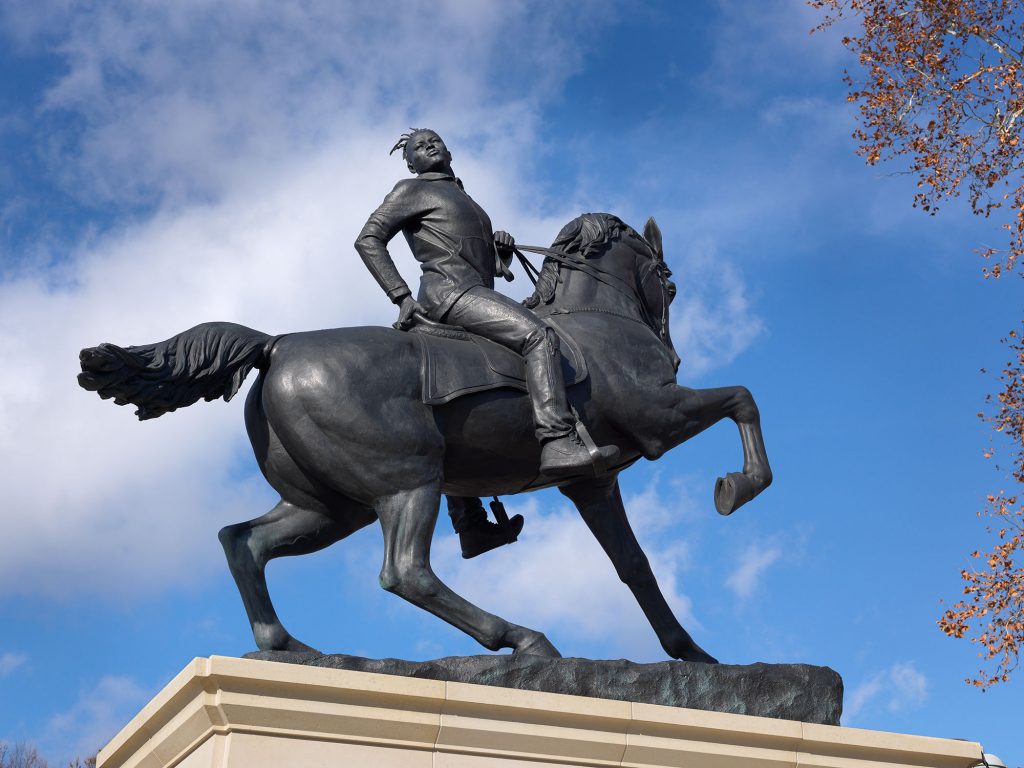
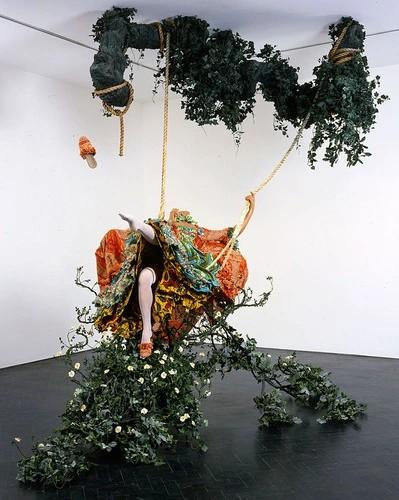
In the digital age, African visual artists are embarking on a transformative journey to assert the authenticity, relevance, and adaptability of the continent’s rich arts culture. This endeavour involves a multifaceted strategy that encompasses the preservation and dissemination of traditional artistic practices through digital platforms and the strategic integration of digital tools and technologies into contemporary artistic expressions. By actively engaging with global audiences, these artists are enhancing the understanding and
appreciation of Africa’s cultural narratives and the profound significance behind their artistry.
Preservation and Dissemination of Traditional Practices
The documentation and augmentation of traditional practices by both native and non-African individuals have played a pivotal role in preserving and disseminating African visual arts culture. Now, it is incumbent upon native African artists to leverage digital platforms to achieve two primary objectives: preserving authenticity and carving out a niche in the global art landscape. By meticulously documenting techniques, stories, and cultural contexts through videos, blogs, and social media, artists can create a digital archive that ensures these traditions are not lost. Shared stories, cultural contexts, and techniques have proven effective in bridging the gap between African cultural artistry and digitalization, creating a harmonious blend of tradition and innovation.
Spotlight on African Artists
Yinka Shonibare
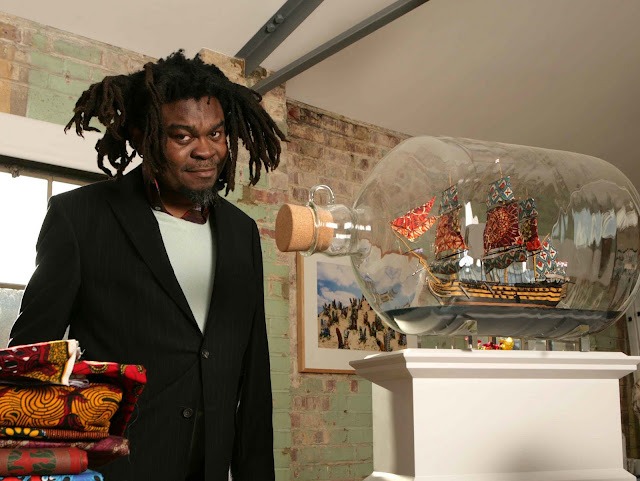
Yinka Shonibare, an artist who draws on his Nigerian heritage and British upbringing, explores themes of cultural identity, globalization, and colonialism. His process involves incorporating vibrant African wax prints to reflect cultural pride and historical complexity. Shonibare’s notable works, such as “Nelson’s Ship in a Bottle” and “The Swing (After Fragonard),” recontextualize historical narratives using African fabrics. His film “Un Ballo in Maschera” reimagines Verdi’s opera with an all-Black cast in African prints. Shonibare enhances his practice with digital tools and platforms, blending traditional and contemporary elements. His “Wind Sculpture (SG) I” exemplifies the adaptability of African arts in the digital age, celebrating cultural exchange and diversity.
Wangechi Mutu
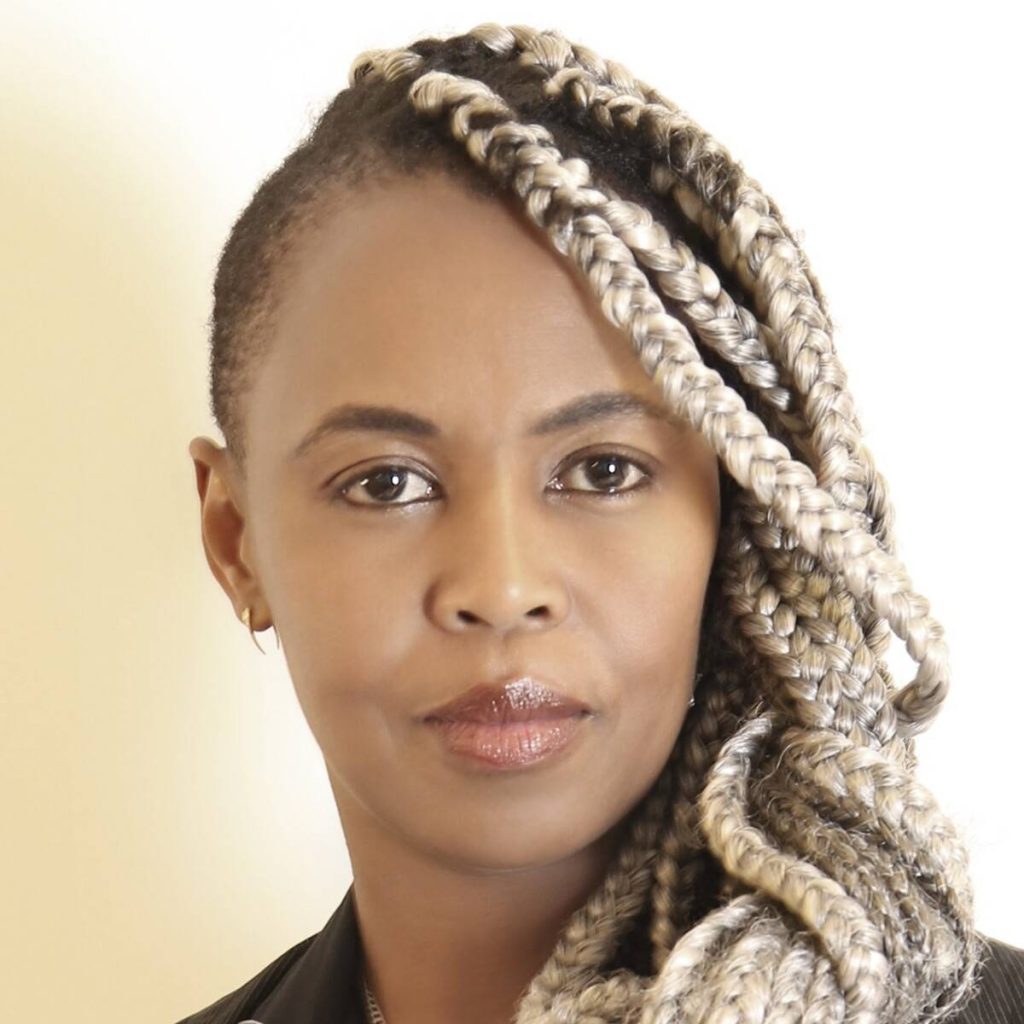
Wangechi Mutu, a Kenyan-born multimedia artist, blends global perspectives with a unique composite aesthetic focused on femininity, culture, and identity. She creates collages and installations using diverse materials, featuring exaggerated and hybrid elements. Her globally recognized works, including “The End of Eating Everything” and “The Seated I–IV” at the Metropolitan Museum of Art, showcase her distinctive style. Mutu utilizes social media for projects like “#100days,” commemorating the Rwanda genocide. Her work’s digital presence enhances engagement and collaboration, allowing her to reach a broader audience and foster a deeper appreciation for her art.
El Anatsui, a Ghanaian artist renowned for transforming recycled materials into large-scale sculptures, delves into themes of consumption, identity, and history. He recycles bottle tops, weaving them together with copper wire to create fabric-like material, combining local traditions with global abstract art. His innovative approach accentuates sustainability and accessibility. Anatsui’s work, such as “Behind the Red Moon” displayed at Tate Modern’s Turbine Hall, reflects political and environmental themes, utilizing discarded elements to evoke socio-cultural narratives. Rooted in traditional craftsmanship, Anatsui engages digital audiences through global exhibitions and online platforms, seamlessly merging traditional and contemporary art movements.
Kehinde Wiley
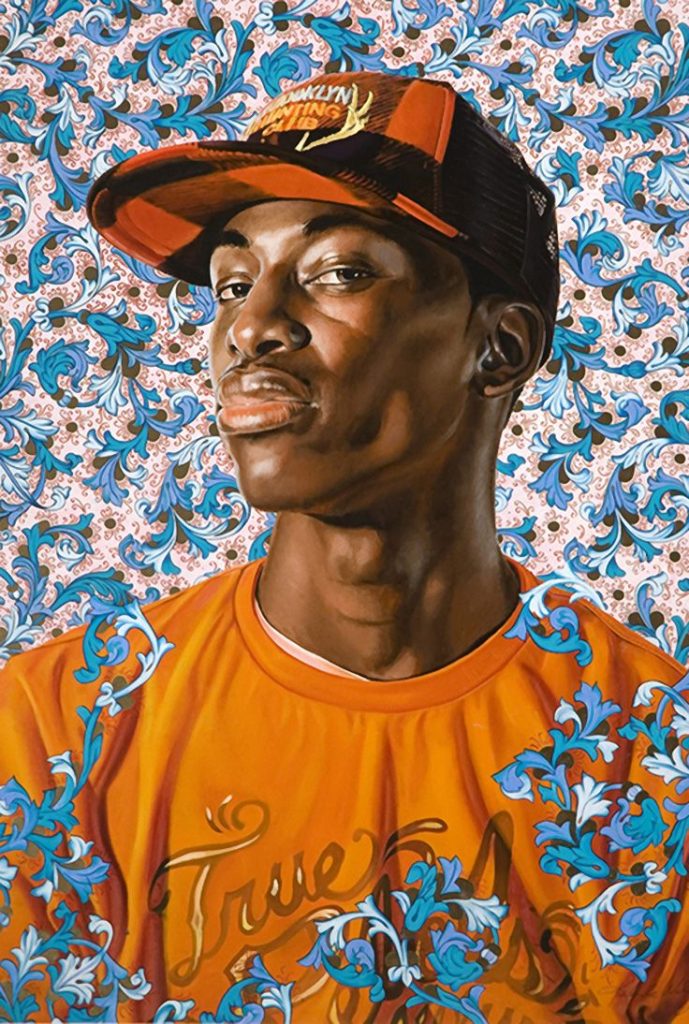
El Anatsui
Kehinde Wiley, an American artist known for his vibrant portraits of African Americans set in the contexts of Old Master paintings, reimagines historical narratives. He employs “street casting” to find models, blending contemporary and historical styles. Wiley’s notable works include Barack Obama’s portrait and “Rumors of War,” which incorporate various international cultural elements. Wiley leverages social media and digital platforms to expand his audience reach and document his projects, thereby enhancing engagement and collaboration.
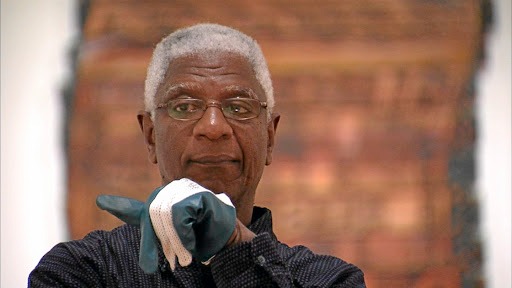
Esther Mahlangu
Esther Mahlangu, a South African artist renowned for preserving and reimagining Ndebele tribal art, is characterized by her vibrant geometric designs. Trained by her grandmother and mother, Mahlangu uses traditional methods and modern materials to expand cultural heritage. Her notable collaborations with BMW, turning vehicles into moving canvases, and her participation in the Venice Biennale highlight her innovative approach. Mahlangu embraces technology in projects like the BMW color-changing collaboration and utilizes digital platforms for broader visibility, ensuring her art reaches a global audience.
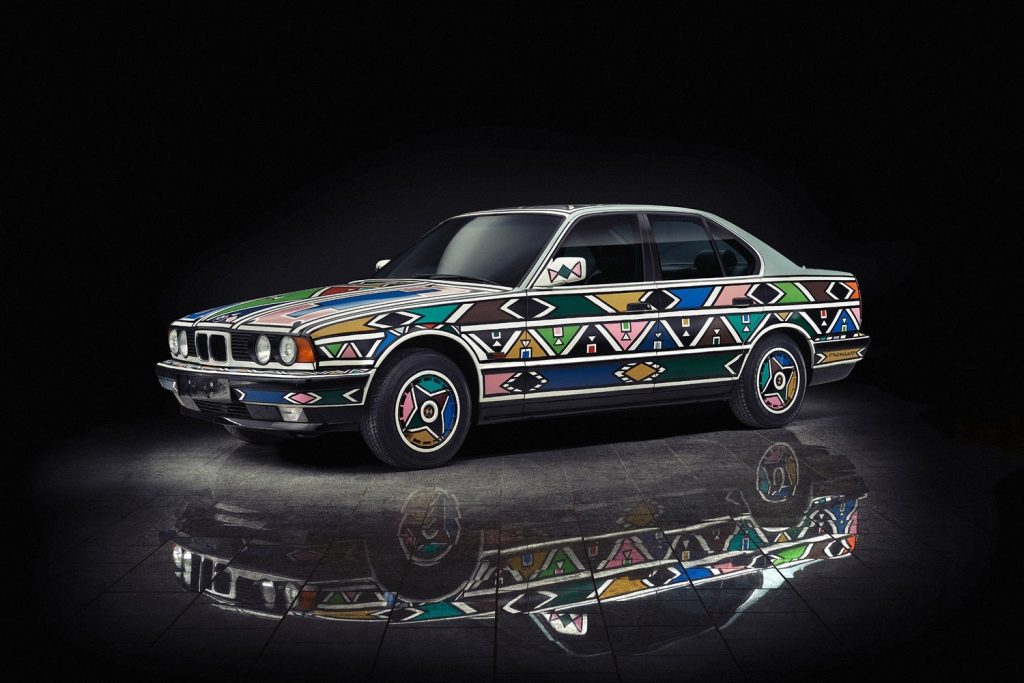
The Dakar Biennale
The Dakar Biennale is a prominent African contemporary visual art exhibition showcasing diverse artists by integrating traditional and modern concepts. Featuring exhibitions, performances, and installations, it explores the intersection of art and technology. The Biennale serves as a digital platform for artists’ presentation and documentation, improving accessibility and engagement with the global art community. It reflects African identity and cultural heritage through innovative artistic expressions. Platforms like YouTube, Instagram, and TikTok offer opportunities to share short tutorials, behind-the-scenes footage, and live performances, reaching a global audience and fostering a greater appreciation for African arts.
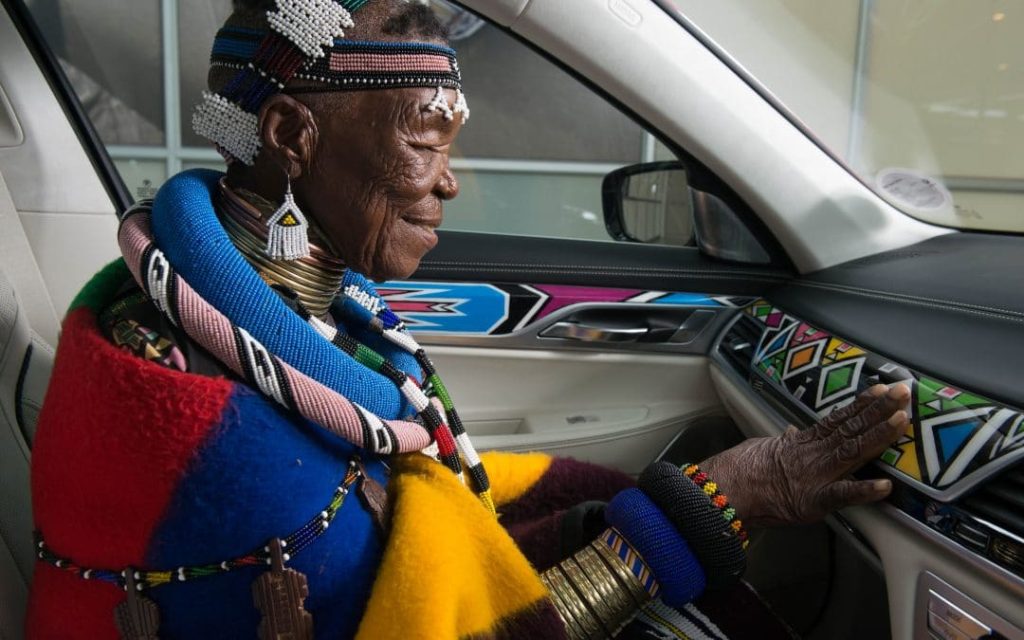
Global Engagement
African artists are leveraging digital platforms to share cultural narratives and amplify global visibility. Online galleries, virtual exhibits, and social media enable visual artists to educate audiences about symbolic meanings, historical contexts, and personal inspirations. Digital sales channels expand commercial reach, demonstrating the enduring value of traditional African arts. This global engagement allows African artists to reach new audiences and foster a deeper understanding of their work, highlighting the richness and diversity of African cultural heritage.
Strategic Digital Tech Tooling
African visual artists are seamlessly integrating traditional methods with contemporary digital innovations, blending cultural heritage and modern aesthetics. Digital fabrication techniques, such as 3D printing, enable unique interpretations of traditional art forms. Graphic design software helps create intricate patterns rooted in cultural identity. This fusion of digital and traditional workspaces showcases the adaptability and versatility of African arts in the digital age, ensuring that these art forms remain relevant and dynamic.
Amplifying Voices and Reaching New Audiences
African artists harness digital tools and channels to amplify their voices, individual iconography, and reach new audiences. These efforts foster global dialogue around Africa’s rich artistic heritage.
Digital engagement, collaborations, and cultural exchanges elevate the visibility and recognition of African arts worldwide, ensuring that these art forms continue to inspire and resonate with people across the globe
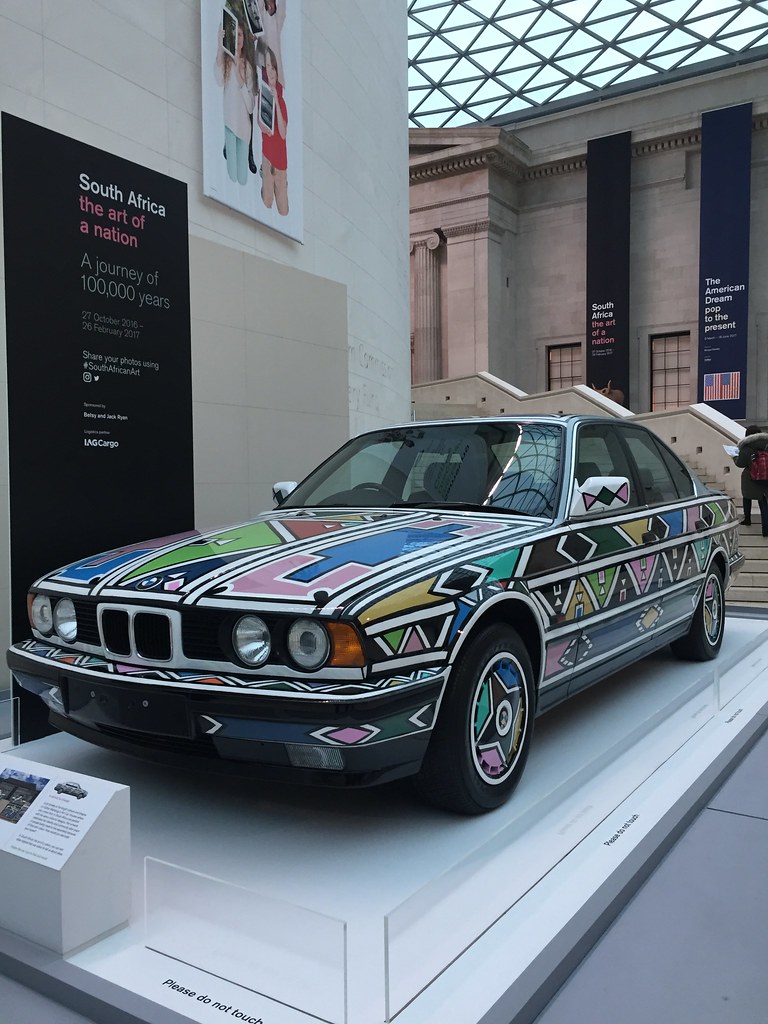
Enduring Power and Adaptability
The enduring power and adaptability of African visual arts are evident as artists evolve with digital tools while preserving their cultural essence. African visual artists are asserting the authenticity, relevance, and adaptability of the continent’s rich artistic heritage in the digital landscape. By blending traditional practices with contemporary digital innovations, they are ensuring that African arts remain vibrant, dynamic, and globally appreciated.
Retrospect
Funmilayo Ransome-Kuti: The Fela Anikulapo-Kuti and Wole Soyinka DNA Strands
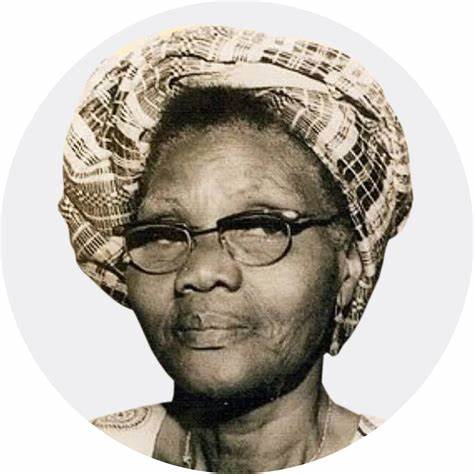
Exploring the legacy of Funmilayo Ransome-Kuti and her contemporaries Margaret Ekpo (Nigeria), Hajiya Gambo Sawaba (Nigeria), Adelaide Casely-Hayford (Sierra Leone), Constance Cummings-John (Sierra Leone), Mabel Dove Danquah (Ghana), and Hannah Kudjoe (Ghana) unveils political activism that defied colonial oppression and patriarchal norms. These matriarchs were trailblazers whose unwavering commitment to education, women’s rights, and social justice ignited movements that reshaped post-colonial West African societies. Through grassroots mobilization and global connections, they left indelible marks on the fight for independence and gender equality across West Africa.
Funmilayo Ransome-Kuti’s remarkable journey began in Abeokuta, Western Nigeria, in 1900. Albeit any attempt to tell her story inevitably intertwines with politics, yet a good storyteller would delve into her inner conflict. This inner conflict is best illustrated by her son, Fela Anikulapo-Kuti, a musician and activist against the Nigerian system. His siblings Olikoye Ransome-Kuti, a renowned medical doctor and public health advocate; Beko Ransome-Kuti, a prominent medical doctor and human rights activist; and Dolapo “Dolu” Ransome-Kuti, who supported her family’s activism also inherited her relentless drive.
Funmilayo’s early life exhibited a strong sense of justice and a passion for education, influenced by her ancestors’ traumatic experience with Portuguese slave dealers, British rescue and repatriation to Sierra Leone. This deep-seated trauma fueled her lifelong fight against oppression in Nigeria, a struggle continued by her descendants. Fela’s children, Femi Kuti and Seun Kuti, have carried on this legacy from the originator Afrobeat music itself.
In marriage, motherhood, and profession, Funmilayo motivated not only her children but also her nephew, Nobel Laureate Wole Soyinka. His mother, Grace Eniola Soyinka, was a key member of the Abeokuta Women’s Union, co-founded by Funmilayo. The influence of these women on Soyinka’s commitment to social justice and democracy is evident, as they marched against colonial taxation and advocated for women’s rights.
The larger themes of anti-colonialism, gender rights advocacy, and social justice in Funmilayo’s life motivated the biopic “Funmilayo Ransome-Kuti,” which won the Best Indigenous Language award at the 2024 Africa Magic Viewers’ Choice Awards (AMVCA). The film’s use of indigenous dialogue celebrates Nigerian linguistic and cultural heritage, adding a unique dimension to its cultural centeredness.
Funmilayo’s education and early life experiences, such as becoming the first female student at Abeokuta Grammar School and studying in England, informed her objective perception of life. She married Reverend Israel Oludotun Ransome-Kuti and together they influenced their children deeply.
Funmilayo’s legacy is not only one of prominence, but also of nurturing a family deeply committed to social justice. Her influence extended beyond her family, inspiring a new generation of women leaders. The award-winning movie stands as testament to her enduring impact, proving that her spirit continues to inspire even those who were children at her passing in 1978. The physical attack by Nigerian soldiers that led to her death remains a poignant reminder of her sacrifices.
Culture and Entertainment
Okotie Eboh: The Icon Who Missed Nigerian Fashion and Style Memo
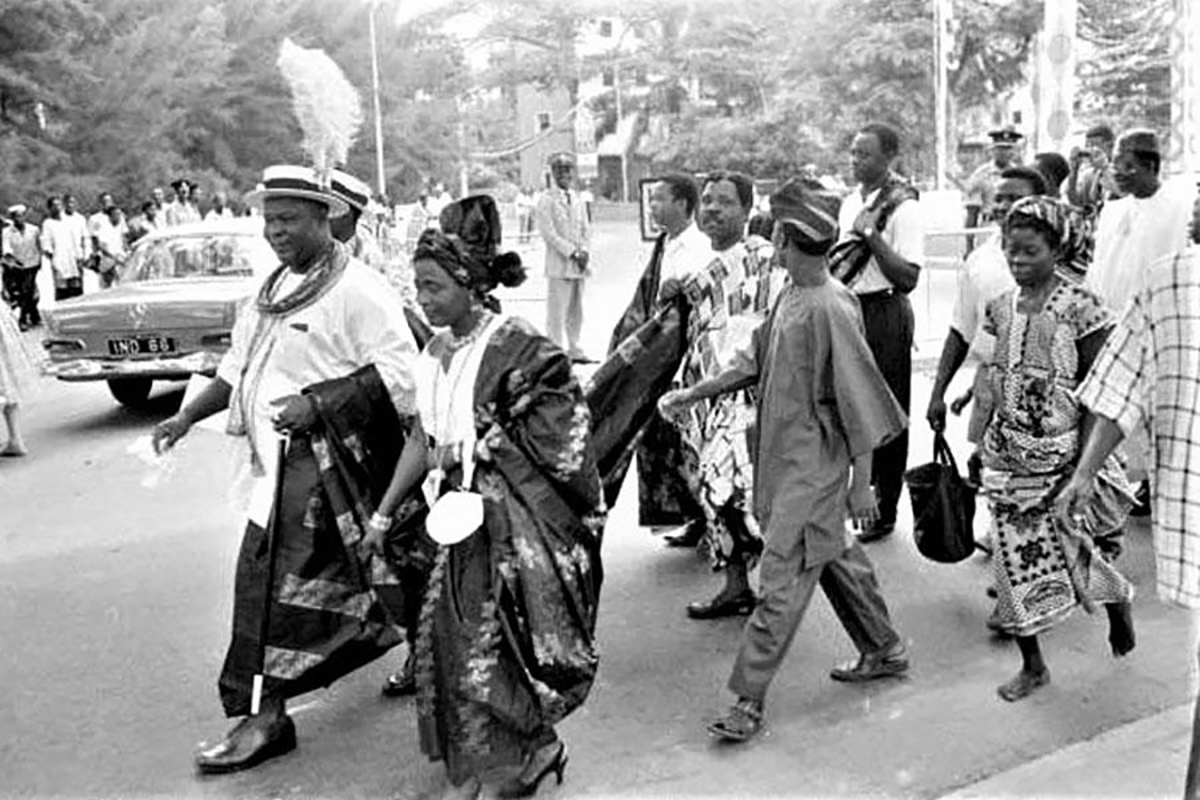
You may never be able to ignore the story of the late Chief Festus Okotie-Eboh, Nigeria’s First Republic Finance Minister from 1957 to 1966, which transcended the realms of politics and economics. He would probably still be a visible fashion style politician of our time; and might have epitomized the nation’s evolved fashion and lifestyle. He stylized the Nigerian dress sense with a masterful interplay of tradition and modernity.
In the early 1960s, when Nigeria basked in the new-found sunshine of freedom from British rule, Okotie-Eboh’s wardrobe reflected the vibrant and stylish lines of his Bini ethnic heritage. He was never short of donning the iconic Hausa Babanriga. I suspect also Igbo Akwete and Yoruba Aso Oke dresses, weaving the much-desired unified Nigerian identity.
As the 1970s ushered in the Afrocentric revolution, Okotie-Eboh’s fashion sense would have mirrored the unapologetic embrace of cultural identity. Designers like Shade Thomas-Fahm, the “Mother of Nigerian Fashion,” might have found in Okotie-Eboh a discerning patron, with the Finance Minister’s choices showcasing the bold Agbada and Isiagu ensembles. He would have signalled a defiant stance against the homogenizing forces of post-colonial and post-war liberal Nigeria.
The increasing interconnectedness of the 1980s would have seen Okotie-Eboh’s fashion adaptability regaled with the seamless integration of Agbada, Aso Oke, and Isi Agu designs into Western tailoring. That blend of traditional Nigerian elements with global trends would have cemented Okotie-Eboh’s status. He would have driven Nigerian spirit – firmly rooted in its cultural heritage, yet open to the ebb and flow of international influences. Indeed, fuelled by the nation’s newfound oil and gas wealth.
Okotie-Eboh’s dress sense could have become an iconic blueprint typical of an adaptable, iconoclastic Nigerian spirit, unafraid to face the challenges of a globalized world, while maintaining a distinct cultural identity. However, even in Okotie-Eboh’s absence, the Nigerian fashion and lifestyle landscape has never stopped evolving. Perhaps one of his great-grandchildren, or a scion of the current generation, could have found inspiration to become another Nigerian fashion and lifestyle aficionado.
He would have carried forward the legacy of cultural pride and adaptability, without necessarily treading the path of public service. Yet, fashion and style remain strong integral components of Nigeria’s governance and social structures. The obvious is evidenced by the often ‘politicised’ grandeur and splendour of Nigerian wedding celebrations.
Chief Festus Okotie-Eboh’s story serves as a powerful reminder of how fashion and lifestyle can become a driver for a nation’s evolution, reflecting its cultural heritage and political landscape. Always a dynamic interplay between tradition and modernity, Chief Okotie-Eboh’s enduring legacy could have enacted an iconic, adaptable and distinctly Nigerian spirit. I guess it had and still does!
Culture and Entertainment
The Kusugu Well: A Legend of Bravery and Triumph
According to Hausa myth, Hausa communities have been living in Central Sudan (much of modern-day Northern Nigeria & some part of Niger) for over 2000 years. Daura was believed to be one of the largest Hausa cities of that time.
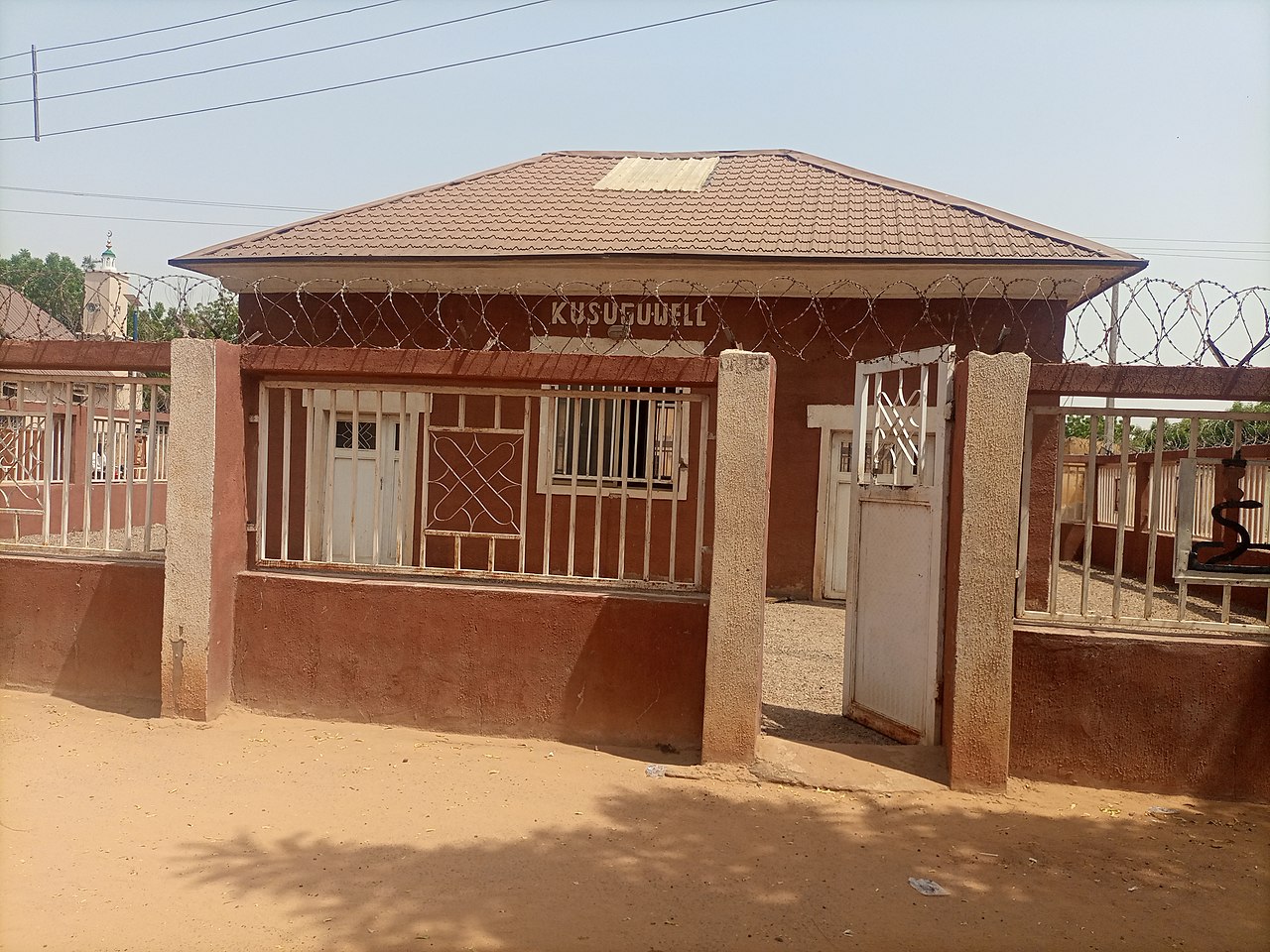
Located in Daura, Nigeria, the Kusugu well is an ancient well that has become famous for its relation to the legend of the hero Bayajidda defeating the snake Sarki. The well and Bayajidda’s supposed dagger are now a tourist attraction that attracts visitors from all over the world.
According to Hausa myth, Hausa communities have been living in Central Sudan (much of modern-day Northern Nigeria & some part of Niger) for over 2000 years. Daura was believed to be one of the largest Hausa cities of that time. It had queens as head of government that oversaw the affairs of the people. During the reign of Queen Daurama, the major source of water for Daura was the Kusugu well. But people were only allowed to fetch water on Fridays because of a strange snake that lived inside the well.
That was how people continued to starve until one day when a person who was believed to be a Baghdadi prince, Bayajidda (Abu Yazid) came to Daura because he could not get the throne after the death of his father. The brave Prince after lodging in the house of one old woman in the name of Ayyana, requested for water, but he was not given enough. He then requested to be shown the well to fetch water. He was warned about a strange snake. He went to the well and eventually killed the snake after a fight. The queen then married him and he became a King. Because he could not speak Hausa before, people started calling him Bayajidda, meaning, he don’t understand before.
He had seven children that ruled over the seven Hausa states that are called Hausa Bakwai. The Kusugu well is where the giant snake Sarki was killed with a by Bayajida in the 10th century because the snake would only allow the people of Daura to fetch water from the well only once a week, mainly Fridays.
Today, the Kusugu well is still standing and has become a popular tourist attraction. The well is surrounded by a fence and visitors can see the well from outside the fence. The story of Bayajidda and the snake Sarki has been passed down from generation to generation and has become an important part of Nigerian culture.
In conclusion, the Kusugu well is not just a well but a tourist centre.
Business
Security System in Nigeria: Challenges and Opportunities for Improvement
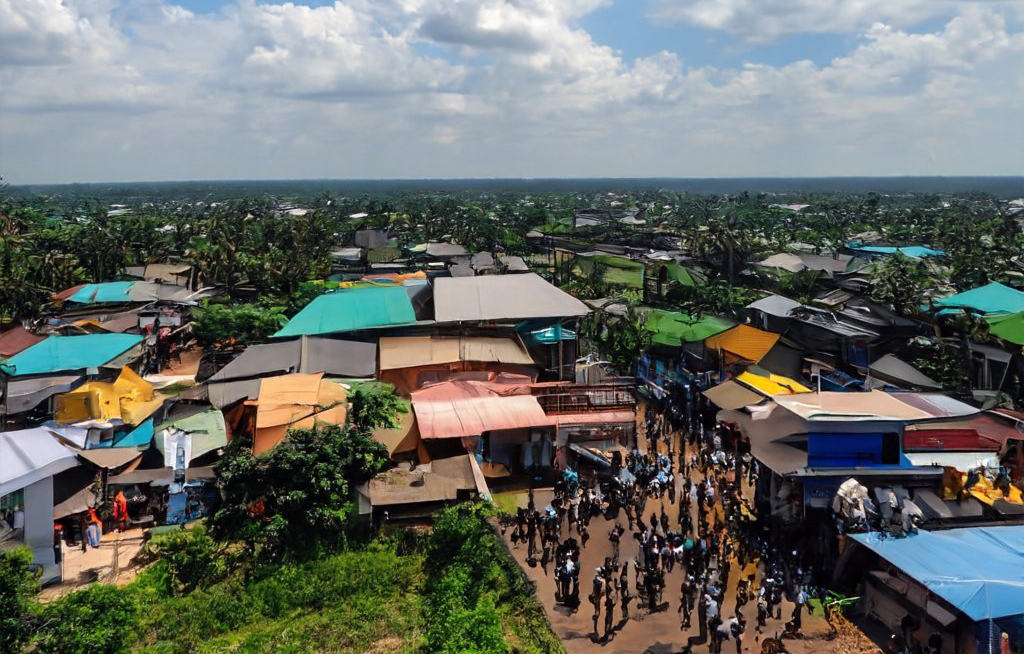
Nigeria, as the most populous country in Africa, faces a myriad of security challenges that have significant implications for its stability, development, and prosperity. From insurgency and terrorism to communal conflicts, kidnapping, and cybercrime, the country’s security landscape is complex and multifaceted. Enhancing the security system in Nigeria is crucial not only for safeguarding the lives and property of its citizens but also for creating an environment conducive to economic growth, social harmony, and sustainable progress.
Current Security Situation
The security situation in Nigeria is characterized by a range of persistent challenges. The activities of insurgent groups such as Boko Haram in the northeastern region have resulted in widespread violence, displacement of populations, and loss of lives. Additionally, the menace of banditry and armed robbery has plagued various parts of the country, leading to fear and insecurity among the populace. Communal conflicts, often fueled by ethnic and religious differences, have also contributed to instability in several states.
Furthermore, the issue of kidnapping for ransom has become a lucrative criminal enterprise, with high-profile abductions garnering national and international attention. Cybercrime, including online fraud and identity theft, poses a growing threat to individuals, businesses, and government institutions. Moreover, the proliferation of small arms and light weapons exacerbates the security challenges, making it more difficult to contain criminal activities.
The Role of Government
The Nigerian government has a fundamental responsibility to ensure the safety and security of its citizens. It is imperative for the government to prioritize security as a core component of its governance agenda. This includes allocating adequate resources to security agencies, enhancing intelligence gathering capabilities, and formulating policies that address the root causes of insecurity.
Additionally, fostering interagency collaboration and coordination is essential for optimizing the effectiveness of security operations. By promoting synergy among law enforcement agencies, intelligence services, and the military, the government can improve its ability to respond to security threats promptly and decisively.
Community Engagement
Engaging communities in security matters is pivotal for crime prevention and maintaining law and order. Community policing initiatives, which involve partnering with local residents to identify and address security concerns, can help build trust between law enforcement agencies and the populace. Furthermore, empowering communities to take ownership of their security through neighborhood watch programs and public awareness campaigns can contribute to a safer society.
Utilizing Technology
The integration of modern technology into Nigeria’s security system can yield significant benefits. The deployment of surveillance cameras, drones, and other advanced monitoring systems can enhance situational awareness and enable proactive measures against criminal activities. Furthermore, leveraging data analytics and artificial intelligence can bolster intelligence gathering and analysis, thereby improving the ability to predict and prevent security threats.
Capacity Building
Investing in the capacity building of security personnel is paramount for enhancing their effectiveness in combating evolving security challenges. Continuous training programs, skill development initiatives, and provision of modern equipment are essential for equipping security forces with the necessary tools and expertise to address complex threats.
Collaboration with International Partners
Given the global nature of security threats, collaboration with international partners is crucial for Nigeria’s security system. Cooperation with neighboring countries and international organizations can facilitate intelligence sharing, joint operations against transnational crimes, and access to technical support and expertise.
Economic Development and Social Welfare
Addressing the underlying factors that contribute to insecurity requires a holistic approach that encompasses economic development and social welfare. By creating job opportunities, promoting entrepreneurship, and investing in education and healthcare, Nigeria can mitigate vulnerabilities that drive individuals towards criminal activities. Additionally, initiatives aimed at addressing social inequality, promoting social cohesion, and fostering inclusivity can contribute to reducing tensions that lead to conflicts.
Conclusion
Enhancing the security system in Nigeria is a complex but imperative task that demands a comprehensive approach involving government leadership, community engagement, technological innovation, capacity building, international collaboration, and socioeconomic development. By addressing the multifaceted nature of security challenges and implementing effective strategies, Nigeria can create a safer environment for its citizens and pave the way for sustainable progress and prosperity. It is essential for all stakeholders to work together towards achieving a secure and resilient future for Nigeria.
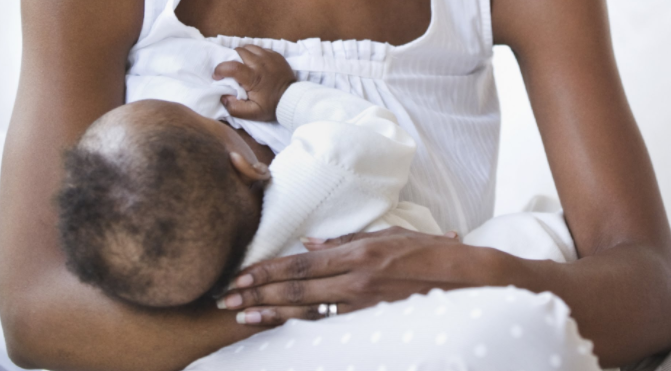
In a bit to have effective and healthy childrens as a result of breastfeeding in Bauchi and in Nigeria,Bauchi Recommended a six months maternity leave for breastfeeding mothers.
On Wednesday at a media dialogue to commemorate the 2023 World Breastfeeding Week held in Katagum LGA of Bauchi state.
Chief UNICEF Bauchi Field Office Tushar Rane in his Statement to the Press said:
“Employer’s must often provide needed support to breastfeeding mothers for at least six months.
“The government and employers must provide the biggest assistance mother’s and care givers needs.”
Executive Chairman BSPhCDA Dr. Rilwadu Mohammed in his Statement to the Press said:
“We want to get the law because this same law has been pass in Kaduna and in Lagos state and we want to get this law so that we can adopt it and bring all into function for the betterment of our state and Nation as a whole.
“The extension will enable working mothers and students to go on maternity leave for six months or four months.
“Let us ensure that we inform the fathers, grandfathers and caregivers that a working-class mother or student is an important mother and should have a safe place, privacy in her working place and flexible time for her to go home and breastfeed her baby.
“I want to use this opportunity to inform you that Bauchi state has agreed to send a law that would take care of both the six months of maternity leave and create an enabling environment for working-class mothers.”
Chairman Of Bauchi Assembly Committees On Health Lawal Dauda in his Statement to the press said: “Since the law it’s an existence for three months martenity leave and they want to reavel that though it has been amended to expend to six months maternity leave which the house of assembly is ready and waiting for the load to come off so that we will facilitate our function.”
A Nutrition Specialist Philomena Irene in her Statement said: “it’s enhances the bound between the mother and her child which provides the child with essential nutrients to keep him healthy and also help the mother.
” it’s cheaper for the nation to invest in breastfeeding and treating other diseases that could occure,if the mother do breastfeeds the child.
” It’s Promotes families bounding making sure the nation is healthy.”
According to organizers the dialogue aim to educate journalist on the need to create more awareness the importance of exclusive breastfeeding and it’s importance to mother’s.
Society
Bayelsa Juggler Ball broke Guinness world record
Bayelsa’s Tonye Leaves the World in Awe as He Climbs Mast with Ball on Head, Surpassing Previous Record!
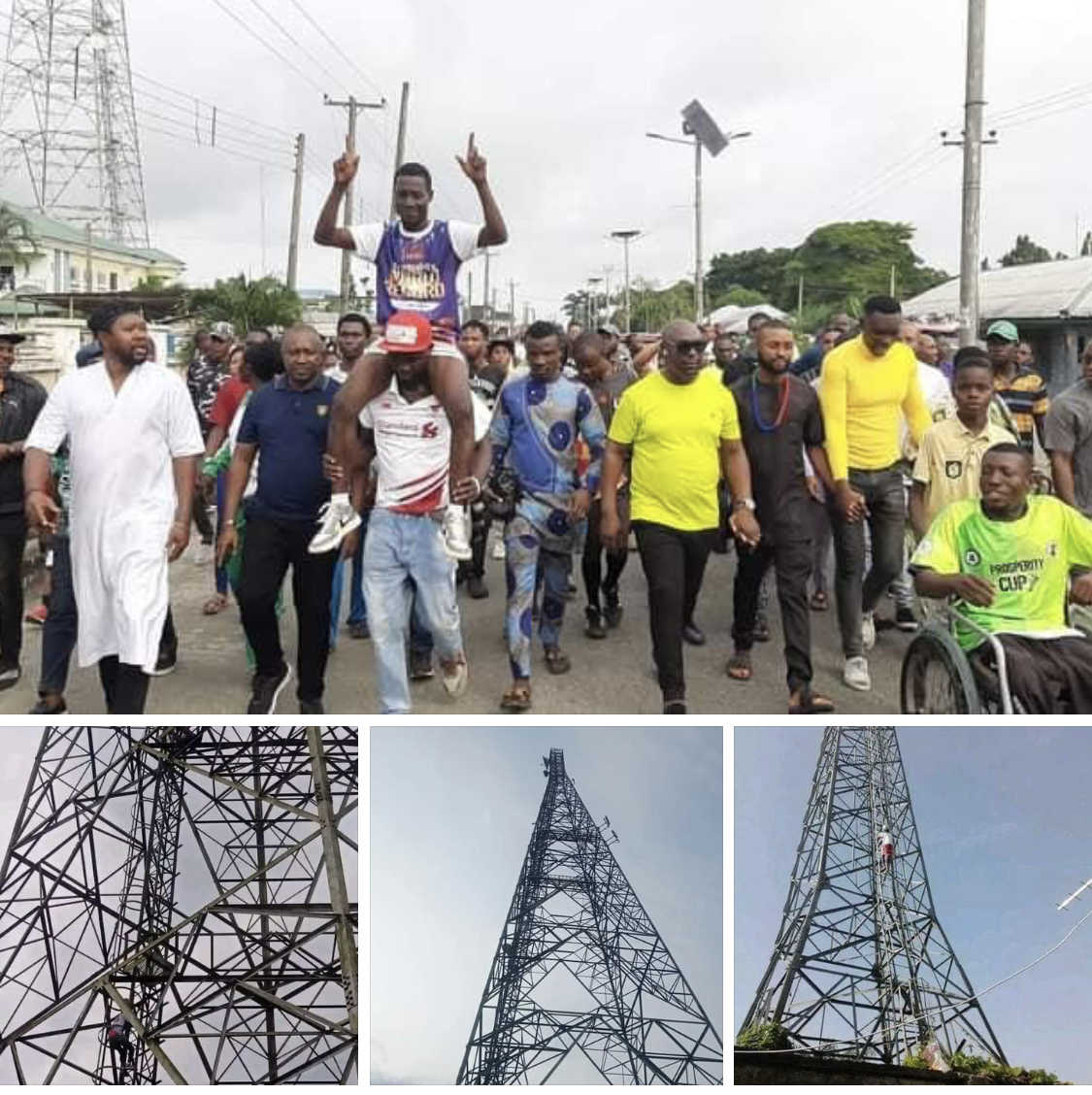
In an incredible feat of skill and determination, Bayelsa’s very own ball juggler, BallBoy Tonye, has shattered the existing Guinness World Record! 🎊🎉🏆
Tonye, with the eyes of the world watching, accomplished the remarkable feat of climbing a mast while balancing a ball on his head. Surpassing the previous record of 70 steps, Tonye managed to conquer an astounding 149 steps! 🤯🌟
Notably, representatives from Guinness World Records were present to witness this historic moment. 📌
Let’s all join in congratulating Tonye on this extraordinary achievement! 🎉🎊🎉
Business
Yenagoa: Communal Complains On Subsidy Fuel
The increase in petrol prices is a treat to many business owners in Nigeria especially in Bayelsa state getting wind up

The recent surge in petrol prices is proving detrimental to numerous businesses, threatening their very survival in the marketplace.
On July 12th, 2023, Iniyekinimi Atubo, a hairstylist hailing from Azuzuama Town in Southern Ijaw LGA, but residing in Yenagoa at Ebis Mechanic Road Amarata, voiced her concerns regarding the rising fuel costs and the consequent impact on her trade.
During an interview with The Diaspolitan Magazine, Iniyekinimi detailed her struggles: “The financial burden caused by increasing fuel prices has made it more difficult for some customers to afford our services. Consequently, our rates have had to rise, which in turn has led to a decline in patronage. We previously charged five hundred Naira for hair retouching, but now, due to elevated fuel costs, we have to charge about one thousand five hundred Naira.”
“Many prospective clients choose to wait for Nepa’s power supply to resume before seeking our services,” she continued. “This impacts us hairstylists significantly – we still have to cover shop rents, taxes, and personal expenses from our earnings. During periods of power outage, customer influx diminishes noticeably.”
Iniyekinimi’s story often repeats itself – some days, she opens her shop only to find there’s no business, resulting in no income. This has severely affected her livelihood. “I urge the state government to reconsider the issue of fuel subsidy to mitigate the cost of fuel which has greatly hampered the state.”
Chenedu Gerard, the Chairman of Inec Road Keke Riders, shares a similar plight: “Due to the rise in fuel costs and subsequent transportation fares, many passengers have resorted to walking with their market purchases to their homes, which has led to a considerable drop in our earnings.”
He added, “Fuel, formerly priced at two hundred and fifty naira, now costs around five hundred naira and above. This price hike has caused a decrease in our passenger rate, leading to substantial financial losses.”
Similarly, Aboli Blessing, a provision seller, voiced her struggles: “Due to the increase in fuel prices, the amount I purchase daily has been curtailed drastically. This affects my business significantly, especially since I need to keep my drinks cold to attract customers, a task made difficult by irregular power supply.”
Business owners in Bayelsa are united in their plea for the government to address the issue of the petrol price hike and the subsequent economic strain it has placed on them.
Politics
Democracy is a continuous journey…
Dr. Dressman encouraged Nigerians to use Democracy Day as an opportunity to honor and appreciate the principles of democracy, which form the foundation of people’s rights and freedoms, rather than merely considering it as another important date on the calendar.
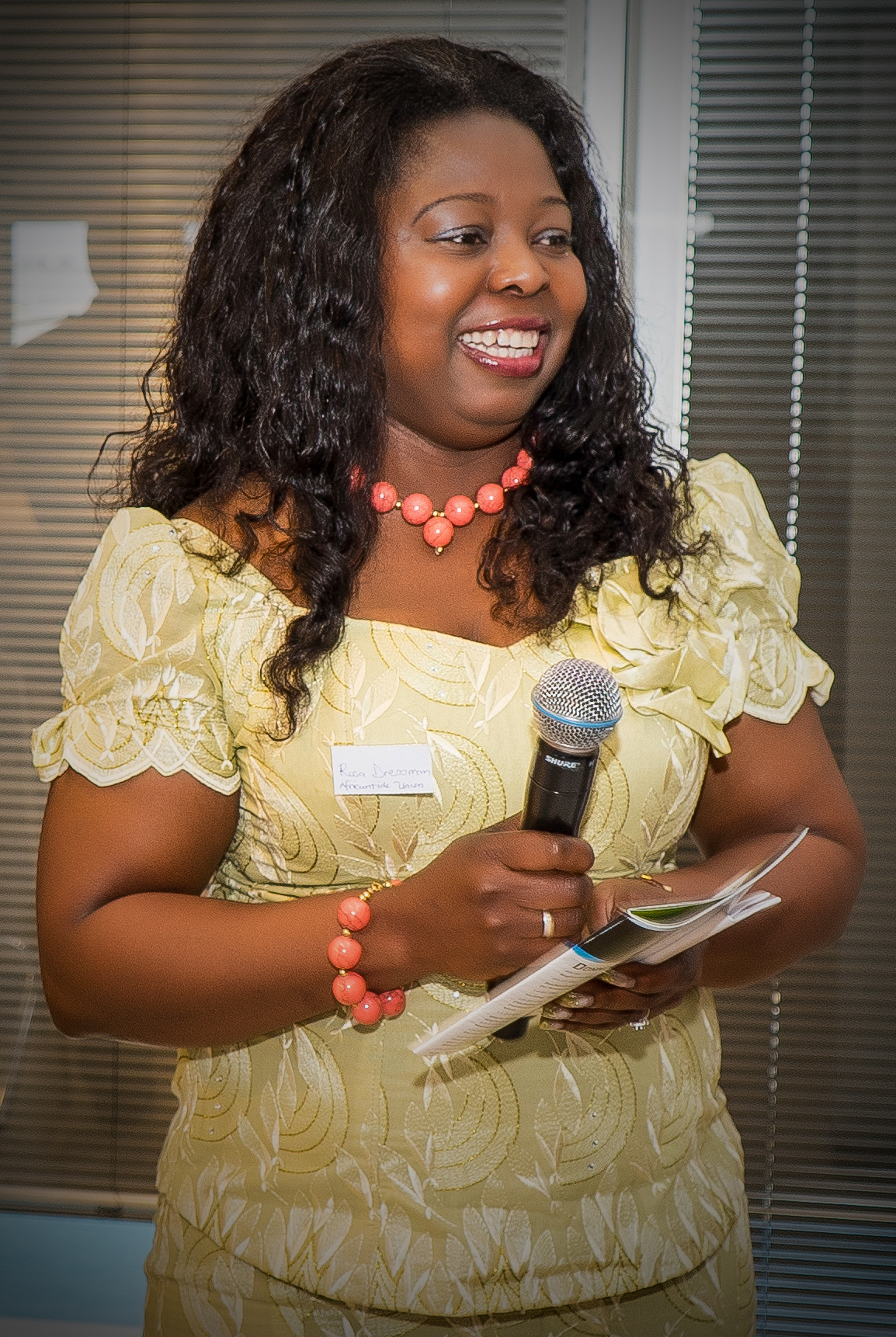
Dr. Rosalyn Dressman, the President and Founder of the Diaspora 4 Diri (D4D) Initiative, delivered a Democracy Day message urging Nigerians to remember and honor those who sacrificed their lives for the establishment of democracy in the country. Speaking at an interactive session with the group’s state, local government, and ward leadership on June 12th, Dr. Dressman emphasized the importance of protecting the hard-earned democracy and called for concerted efforts to promote its ideals.
According to Dr. Dressman, democracy is a pact between the government and its people, a commitment that guarantees the freedom of expression, the right to elect representatives, and participation in decision-making processes. She commended the Governor Douye Diri-led administration for fulfilling its promises to the people of Bayelsa by initiating projects and programs aimed at improving their living conditions.
Dr. Dressman encouraged Nigerians to use Democracy Day as an opportunity to honor and appreciate the principles of democracy, which form the foundation of people’s rights and freedoms, rather than merely considering it as another important date on the calendar. She emphasized that democracy is not just a word or concept, but a living entity driven by the will of the people.
The D4D Founder expressed that democracy is the belief that power should be distributed among the many rather than being concentrated in the hands of a single ruler, a select few, or a privileged class. It ensures that the rule of law prevails and that justice is served, regardless of the strength of the oppressor’s influence.
Dr. Dressman highlighted that democracy is a continuous journey, not a static achievement, and therefore requires constant vigilance, engagement, and participation from all individuals. She called for unity among Nigerians, emphasizing that the strength of the country’s democracy lies in its diversity.
During the interactive session, a minute of silence was observed to honor the departed souls of the Bayelsa Queens Supporters Club and the band members of the Ijaw musician, Barrister Smooth.
Culture and Entertainment
Shaping Cultures and Societies Through Nigerian Cinema
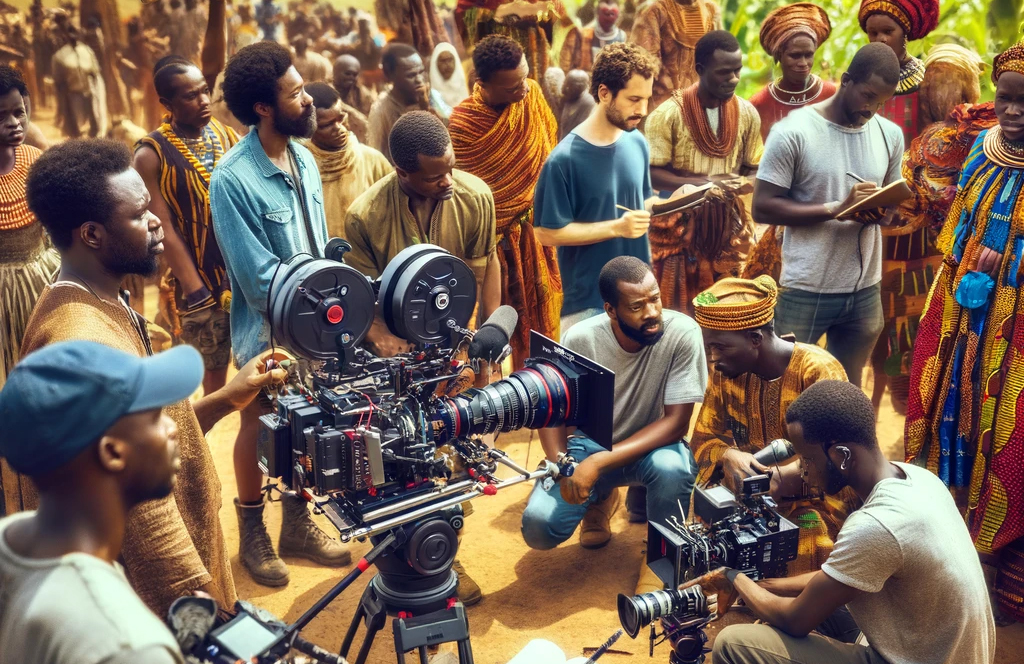
In the panorama of global entertainment, the Nigerian film industry, Nollywood, exemplifies the profound capability of movies and music to shape societal norms, cultural identities, and even economic landscapes. This essay delves into the multifaceted influence of the entertainment sector, with a particular focus on Nollywood’s impact and its interplay with societal dynamics.
The genesis and evolution of Nollywood mirror the broader narrative of the global movie industry’s journey from the rudimentary storytelling of the early 20th century to the sophisticated, technology-driven blockbusters of today. Nollywood, recognized as the second-largest film producer globally, epitomizes this transformation, highlighting the industry’s resilience and its pivotal role in artistic expression and societal commentary. Nigerian films serve as a conduit for cultural reflection, often tackling societal issues and provoking thought on topics ranging from corruption and social injustice to gender equality.
Parallel to the film industry, music holds a significant place in shaping cultural landscapes. In Nigeria, the synergy between movies and music amplifies the country’s cultural narrative, propelling it onto the global stage. The music industry, with its diverse genres ranging from Afrobeats to traditional rhythms, complements the storytelling of Nollywood, enhancing the emotional resonance and cultural depth of Nigerian films. Together, they forge a potent medium for cultural exchange and global influence.
Nollywood’s ascendancy in the global entertainment arena underscores the influential power of film as a medium for societal reflection and change. By weaving complex narratives that address pressing social issues, Nigerian movies contribute to public discourse, sometimes even catalysing policy shifts and social awareness. This exemplifies the broader capacity of entertainment to not only mirror societal norms and values but also to challenge and reshape them. Through its films, Nollywood has become a beacon of social commentary, reflecting the struggles, aspirations, and dynamism of Nigerian society.
Looking ahead, the future of Nollywood and the broader Nigerian entertainment industry is inextricably linked with digital innovation. The proliferation of streaming platforms and the ubiquity of social media have democratized access to content, allowing Nigerian films and music to reach a global audience like never before. This digital revolution offers unprecedented opportunities for Nollywood to expand its influence, experiment with new storytelling formats, and engage with international audiences. However, this digital frontier also presents challenges, including the need for robust copyright protections, infrastructure development, and ensuring equitable access to digital tools and platforms.
Conclusively, the Nigerian film industry, Nollywood, stands as a testament to the transformative power of entertainment in shaping societal narratives, cultural identities, and global perceptions. As a microcosm of the broader entertainment industry, Nollywood illustrates how movies and music can transcend geographical and cultural boundaries, fostering global dialogues and driving social change. The continued evolution of Nollywood, fuelled by technological advances and creative innovation, promises to further solidify its role as a cultural powerhouse and societal influencer in the years to come.
Culture and Entertainment
Igbo Culture: An Emblem of Nigerian Heritage
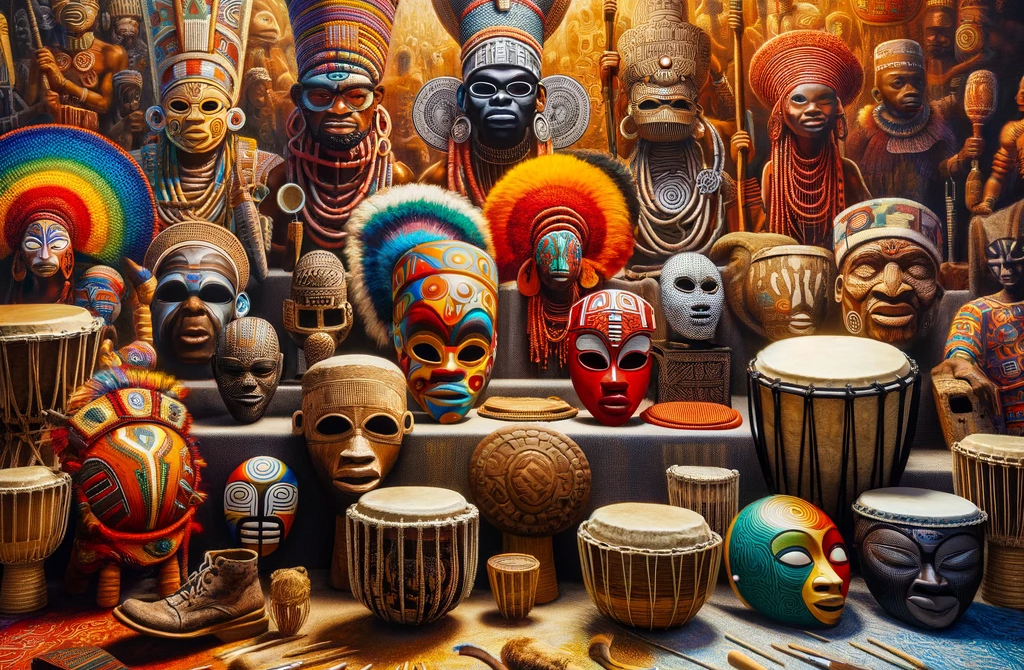
Nestled within the heart of Nigeria’s ethno-cultural diversity, the Igbo people, also known as the Ibo, represent one of the country’s largest and most vibrant ethnic groups. Their profound cultural heritage, characterized by distinctive languages, customs, traditions, and artistic expressions, contributes significantly to the rich mosaic that is Nigerian culture. This essay explores the various facets of Igbo culture, highlighting its significance not only within Nigeria but as a source of fascination and inspiration globally.
Language as the Soul of Culture
The essence of Igbo identity is deeply rooted in its language. Igbo, a tonal language with a complex grammatical structure, is spoken by millions across Nigeria and beyond. More than a mere tool for communication, the Igbo language is a critical vehicle for cultural preservation. It carries the weight of history, traditions, and ancestral wisdom, passing these treasures down through generations and ensuring the continuity of Igbo linguistic heritage.
Weaving the Social Fabric: Customs and Traditions
Igbo society is richly textured with customs and traditions that trace back through generations. These practices are the threads that weave the social fabric, guiding the community through life’s milestones, from birth to marriage, and even in death. Traditional Igbo weddings stand out as a vibrant celebration of unity, encapsulating the elaborate rituals and ceremonies that symbolize the joining of two families. Through these customs, the Igbo people maintain a tangible link to their ancestors, preserving the essence of their communal life.
The Palette of Igbo Artistry
The Igbo’s rich artistic traditions are a vivid testament to their creativity and cultural depth. Music and dance, characterized by lively rhythms and energetic performances, play a pivotal role in Igbo cultural expression. Instruments like the udu and ekwe underscore the community’s musical heritage, providing the soundtrack to ceremonies and celebrations. Dance, likewise, is an integral part of Igbo tradition, embodying the spirit and vitality of the people. Beyond performance arts, Igbo visual arts contribute to the community’s artistic legacy, showcasing the ingenuity and craftsmanship of its people.
A Mosaic of Beliefs: Religion in Igbo Culture
The spiritual landscape of the Igbo is a mosaic of traditional beliefs, Christianity, and Islam, illustrating the community’s religious diversity and syncretism. At its core, traditional Igbo religion encompasses a complex system of deities and spirits, reflecting the people’s connection to the divine. This indigenous spirituality coexists with Christian and Islamic practices, showcasing the Igbo’s adaptability and the interweaving of various religious traditions.
The Flavors of Igbo Cuisine
Igbo cuisine mirrors the agricultural richness of their homeland, offering a spectrum of flavourful dishes that celebrate local produce. Staples like yams, cassava, and plantains are the foundation of Igbo culinary tradition, accompanied by soups and stews rich in locally sourced ingredients. This cuisine is not merely about sustenance but embodies the cultural identity and community bonds of the Igbo people.
Conclusion
The Igbo culture is a living tapestry, vibrant with the colours of tradition, language, art, spirituality, and culinary artistry. It stands as a testament to the resilience, creativity, and dynamic spirit of the Igbo people. As this culture continues to inspire and resonate beyond the borders of Nigeria, it reaffirms the enduring and evolving legacy of Igbo heritage. In the global cultural landscape, the Igbo community remains a beacon of cultural richness, diversity, and human creativity, embodying the essence of Nigerian and African identity at large.
-
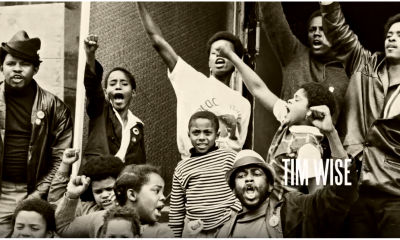
 Documentaries2 years ago
Documentaries2 years agoFilm Review | OUT OF DARKNESS Untold history of African people
-
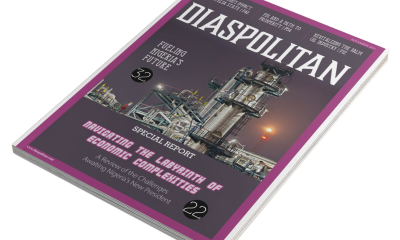
 Magazine1 year ago
Magazine1 year agoMedian Issue
-
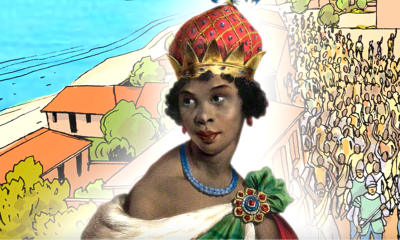
 Documentaries2 years ago
Documentaries2 years agoQueen Nzinga: A Symbol of Resistance and Power in 17th Century Angola
-
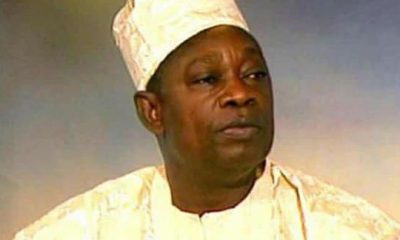
 Retrospect2 years ago
Retrospect2 years agoThe Arrest of Moshood Abiola
-

 Health2 years ago
Health2 years agoProvision Of A Framework For Vaccination In Nigeria
-
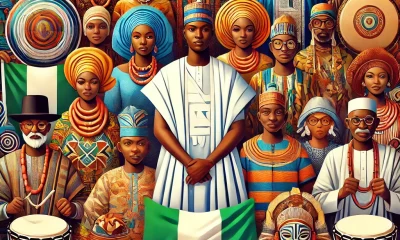
 Business11 months ago
Business11 months agoTHE MODEL PERSONA – What is a Nigerian?
-
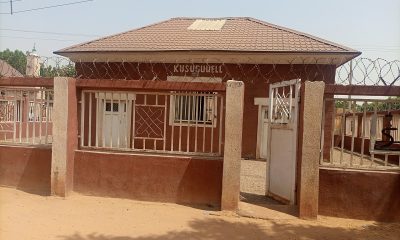
 Culture and Entertainment12 months ago
Culture and Entertainment12 months agoThe Kusugu Well: A Legend of Bravery and Triumph
-
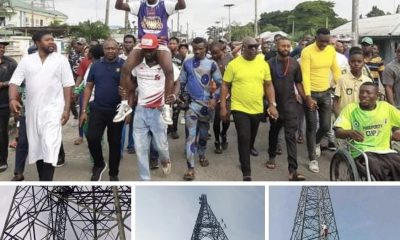
 Society2 years ago
Society2 years agoBayelsa Juggler Ball broke Guinness world record
-
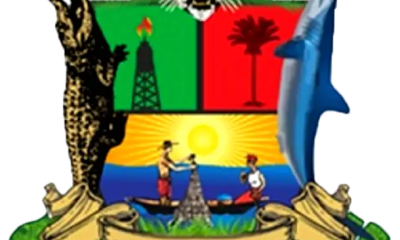
 Business2 years ago
Business2 years agoBayelsa State Government Invests N154 Million to Boost Reven
-
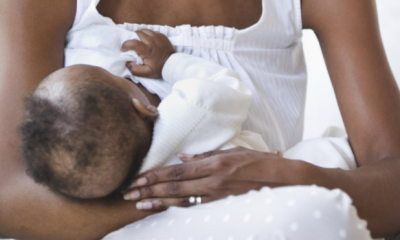
 Health2 years ago
Health2 years agoBauchi Recommended A Six Months Maternity Leave
-
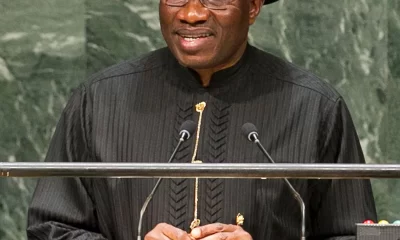
 Politics2 years ago
Politics2 years agoJonathan charges world leaders to enthrone peace
-
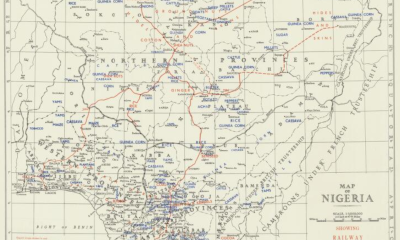
 Retrospect2 years ago
Retrospect2 years agoThe June 20 1963 State of Emergency
-
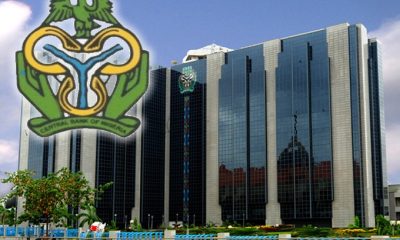
 Business2 years ago
Business2 years agoThe new CBN payout policy for Diaspora remittances
-
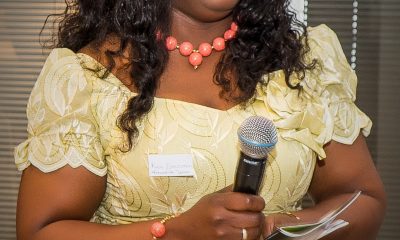
 Politics2 years ago
Politics2 years agoDemocracy is a continuous journey…
-
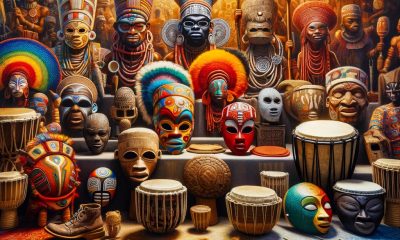
 Culture and Entertainment2 years ago
Culture and Entertainment2 years agoIgbo Culture: An Emblem of Nigerian Heritage
-
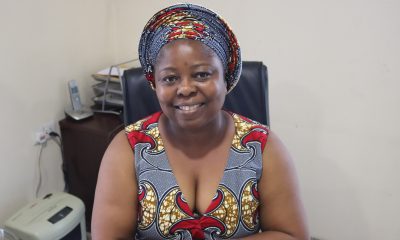
 Politics2 years ago
Politics2 years agoD4D Poised To Engender Democratic Ideals
-
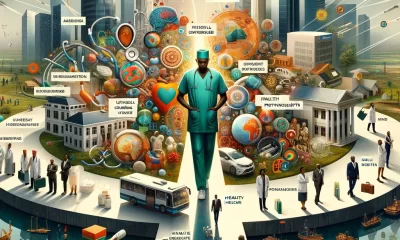
 Health1 year ago
Health1 year agoThe journey towards improving the healthcare system in Nigeria
-
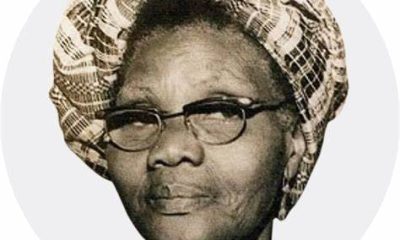
 Retrospect11 months ago
Retrospect11 months agoFunmilayo Ransome-Kuti: The Fela Anikulapo-Kuti and Wole Soyinka DNA Strands
-

 Health2 years ago
Health2 years agoLagos: Rage Of Doctors Over Deceased Colleague, Demands Pros
-
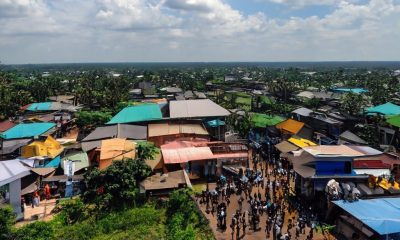
 Business1 year ago
Business1 year agoSecurity System in Nigeria: Challenges and Opportunities for Improvement





